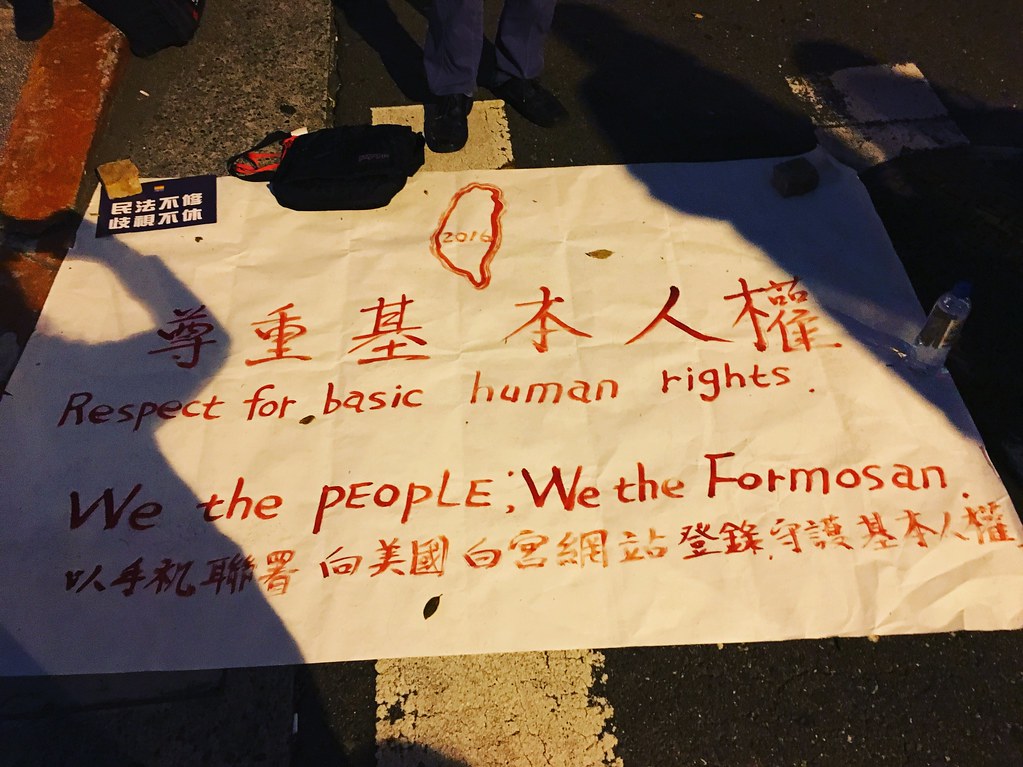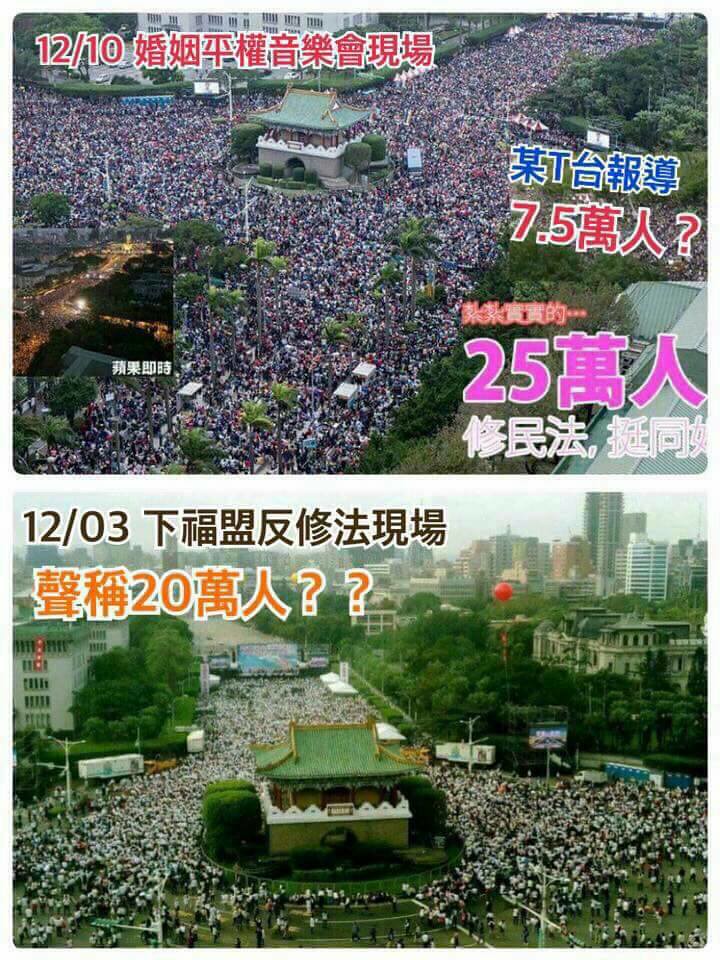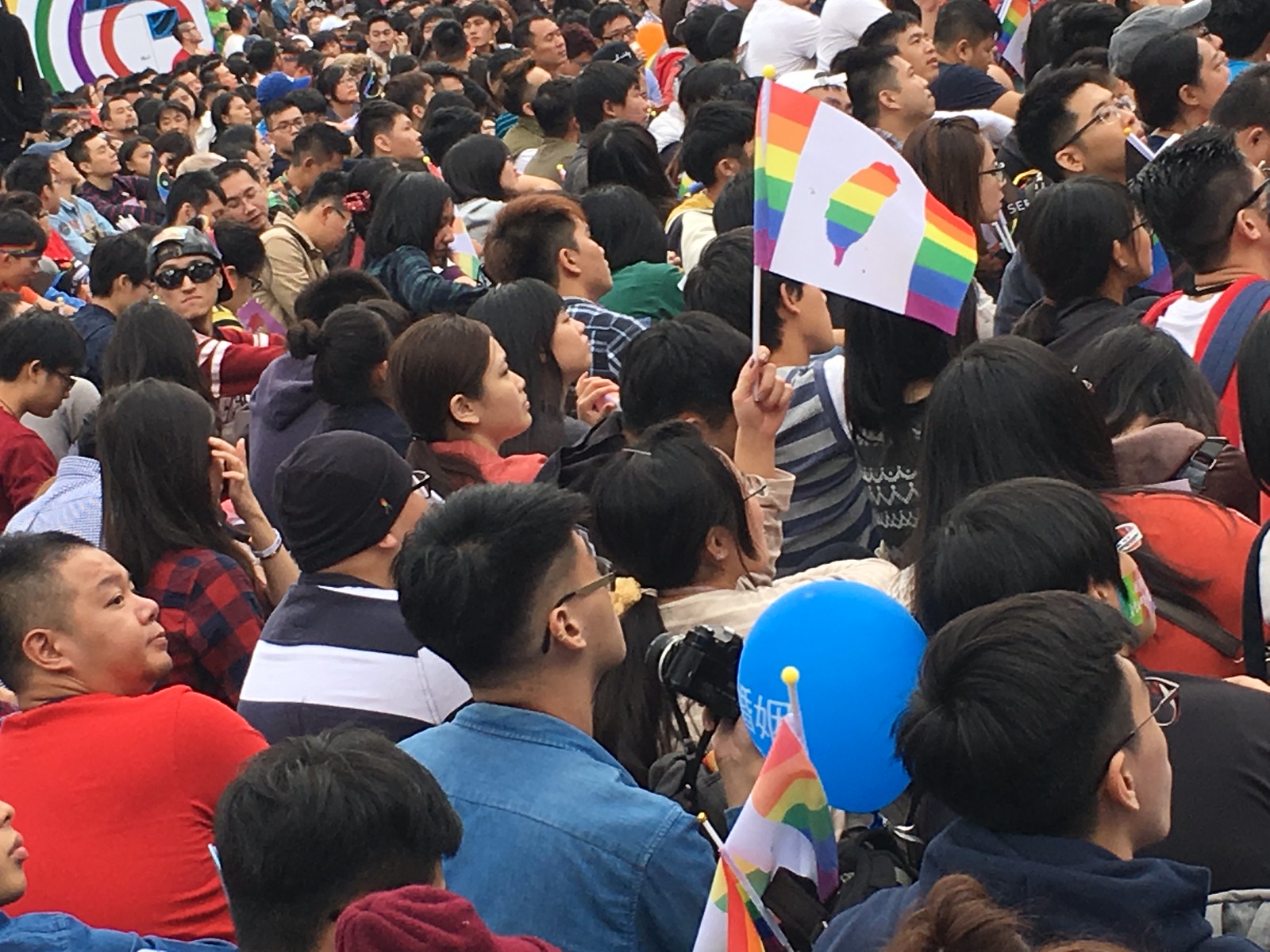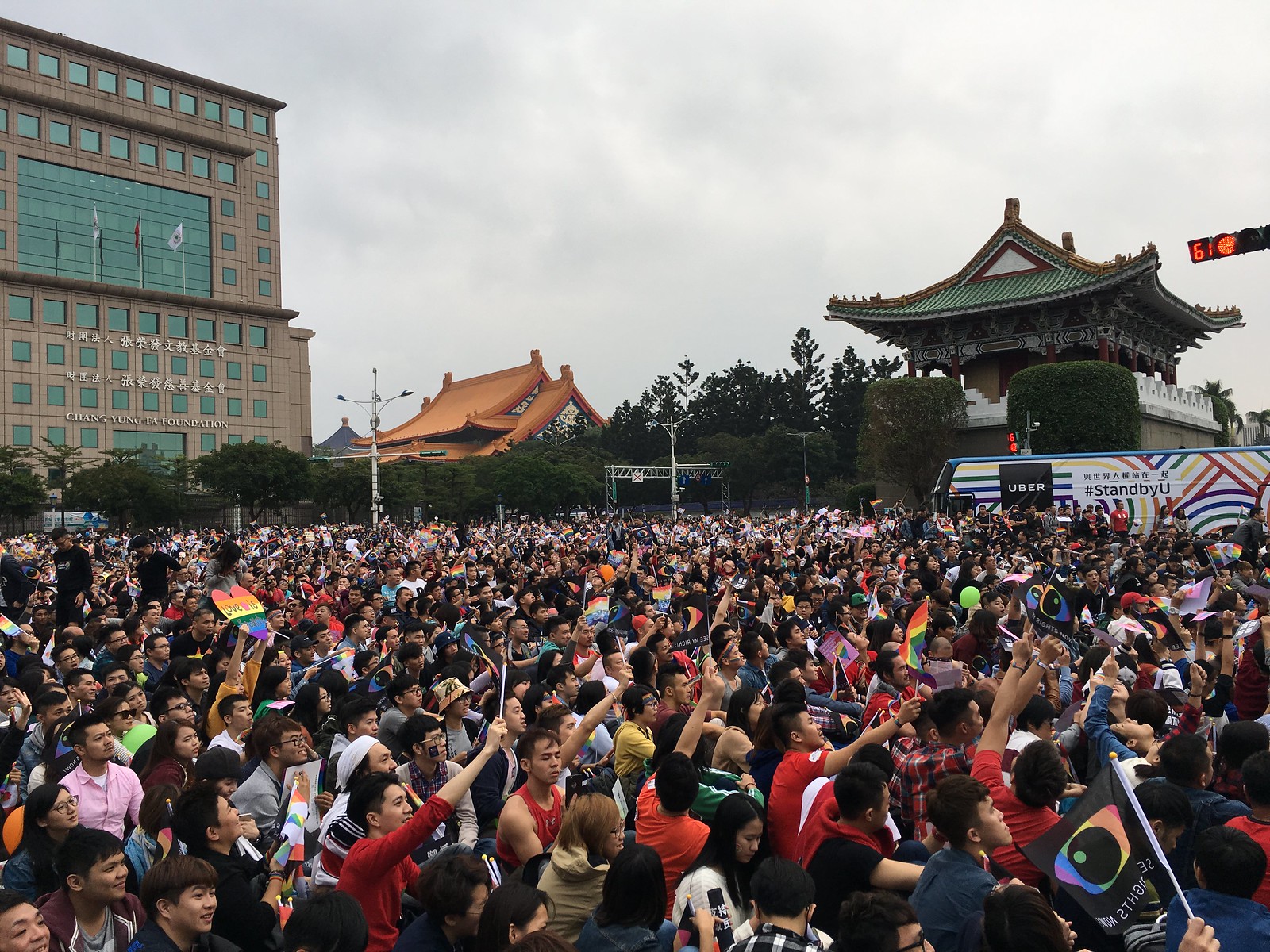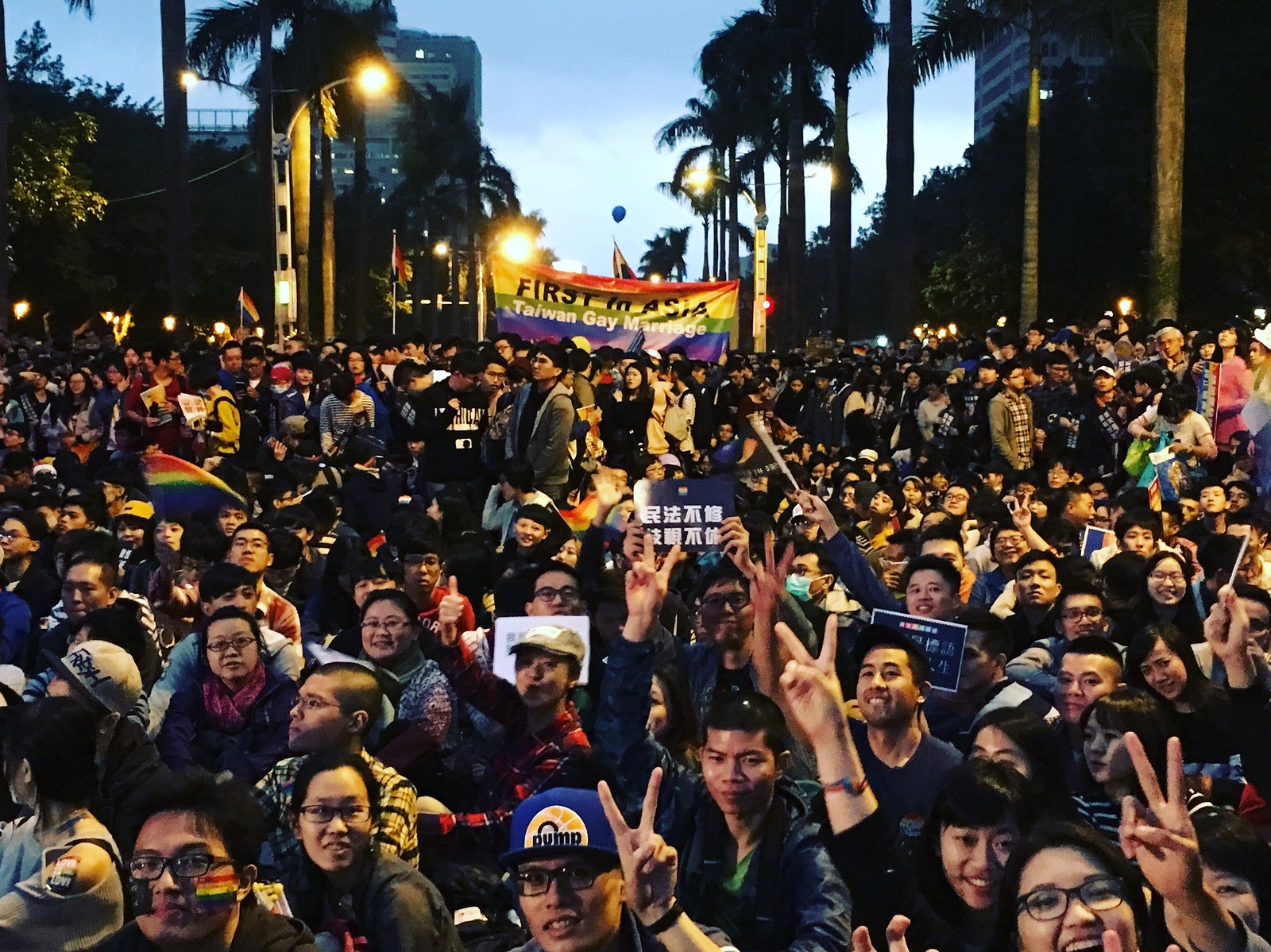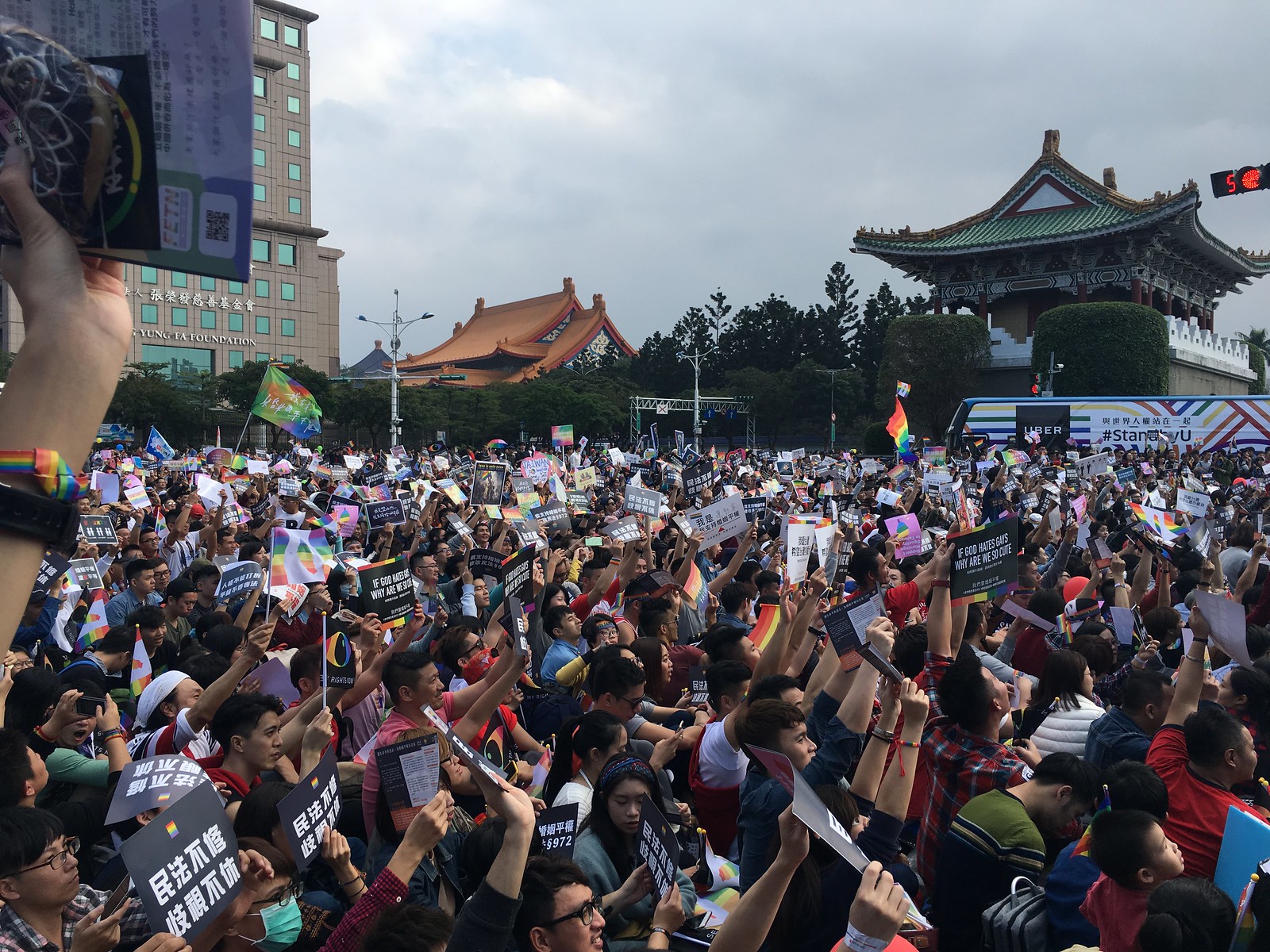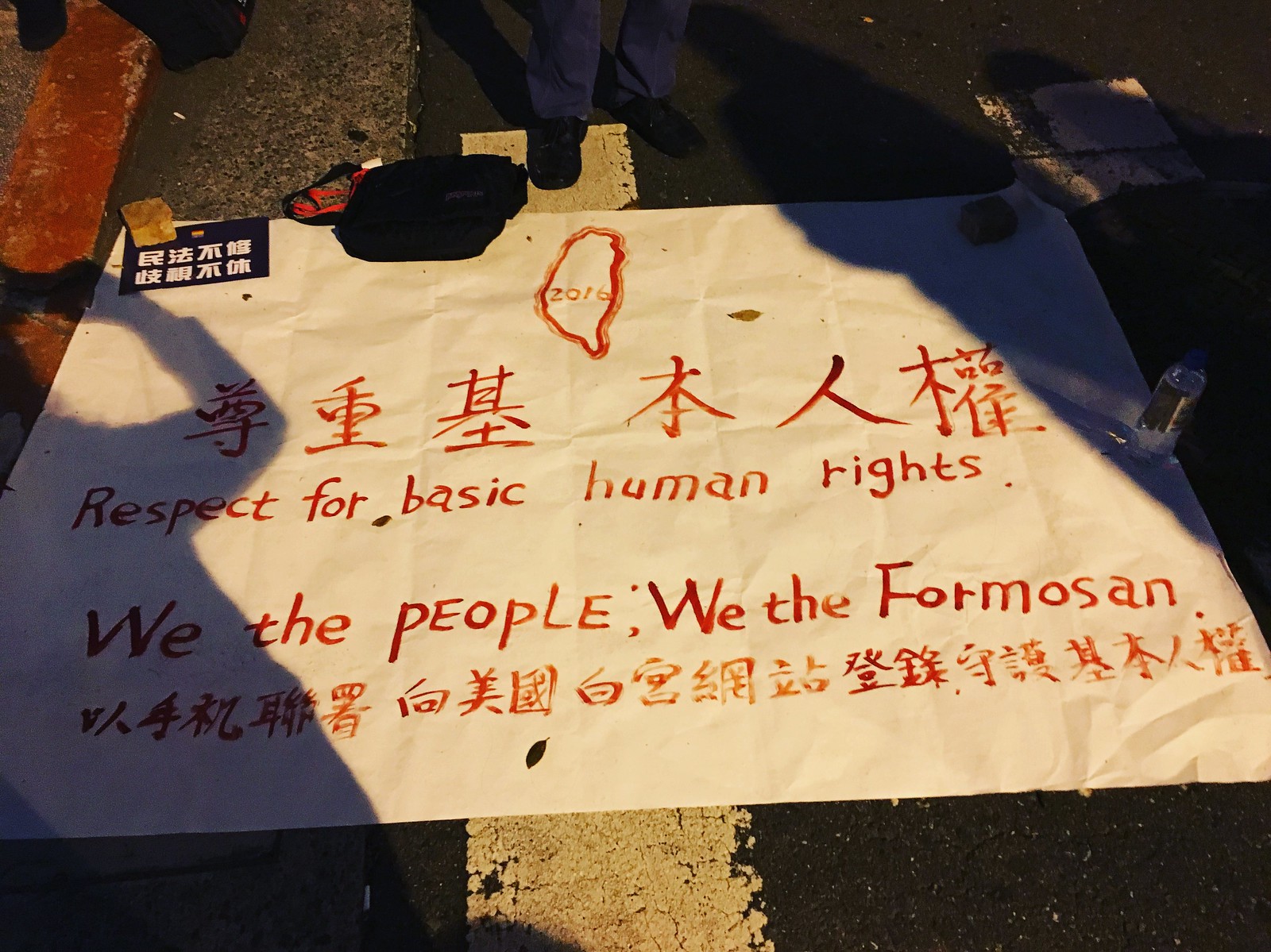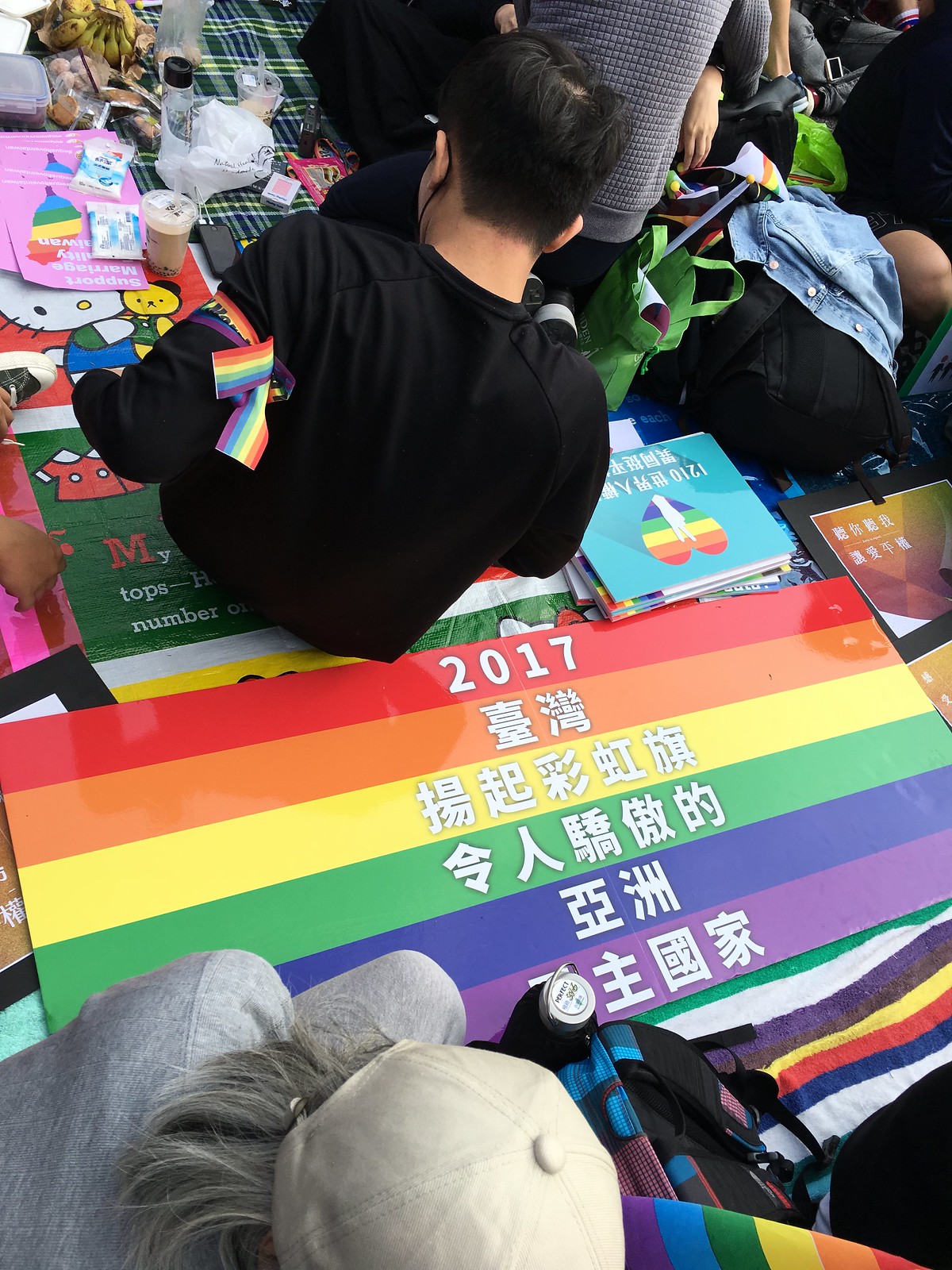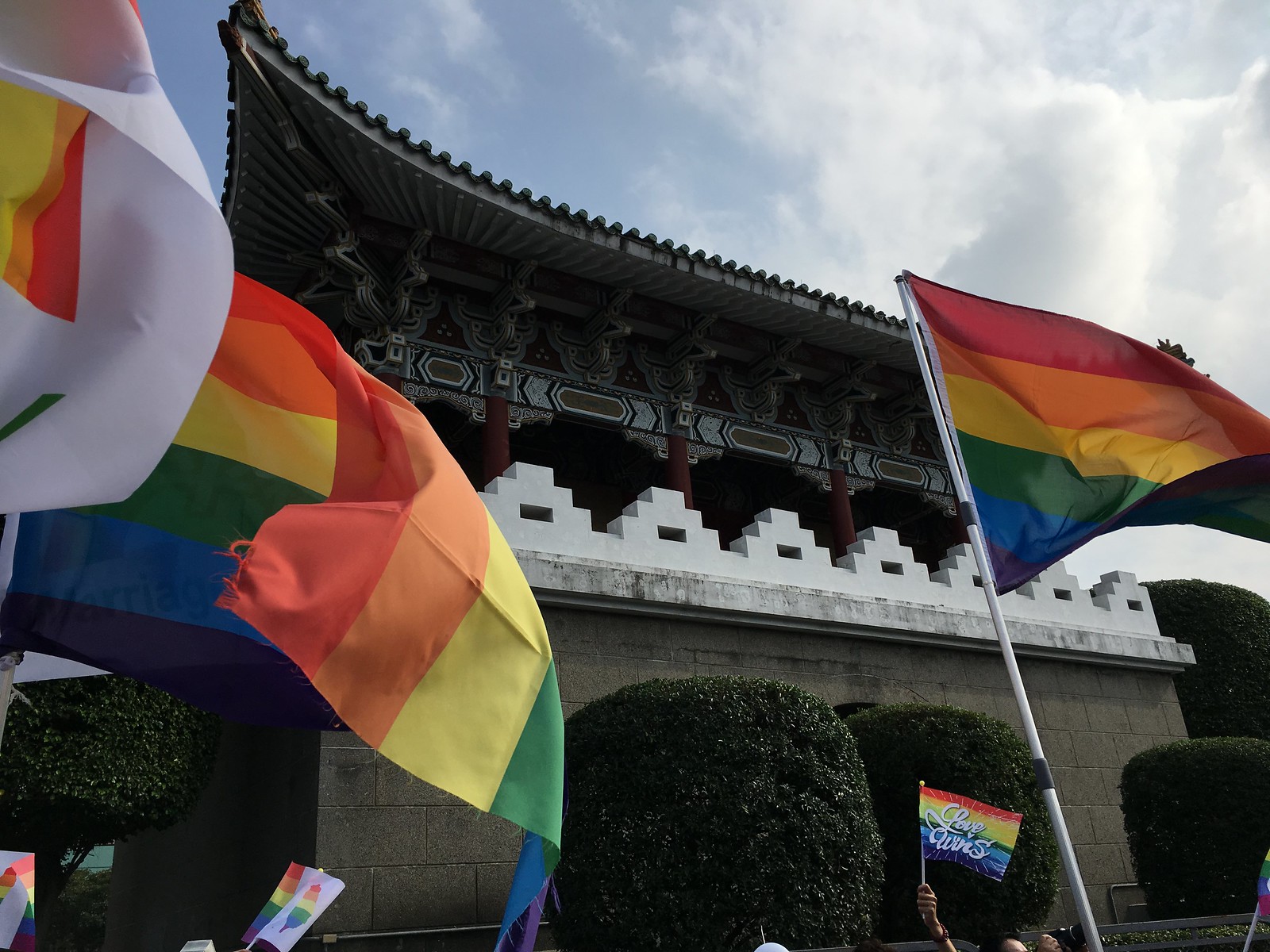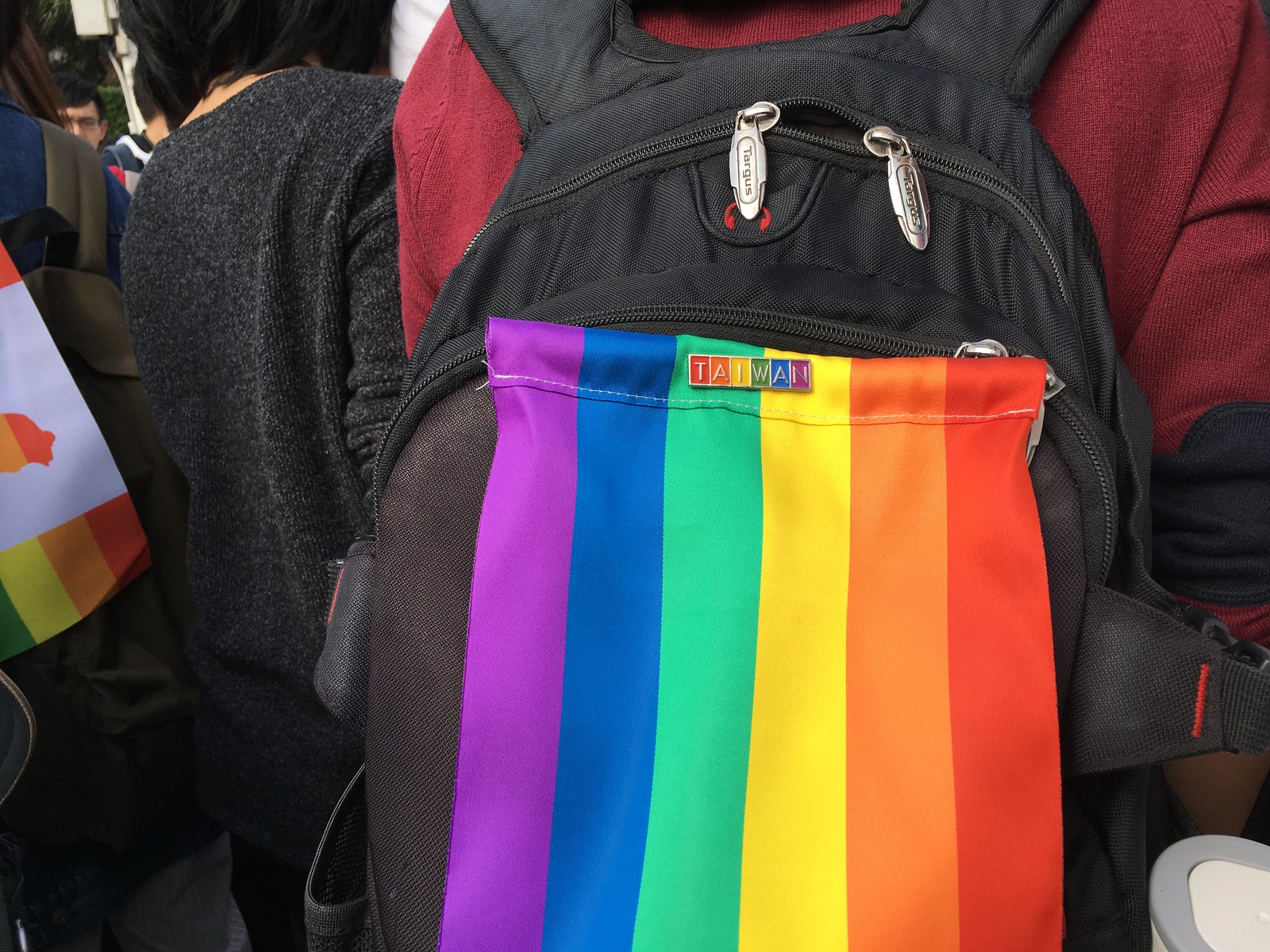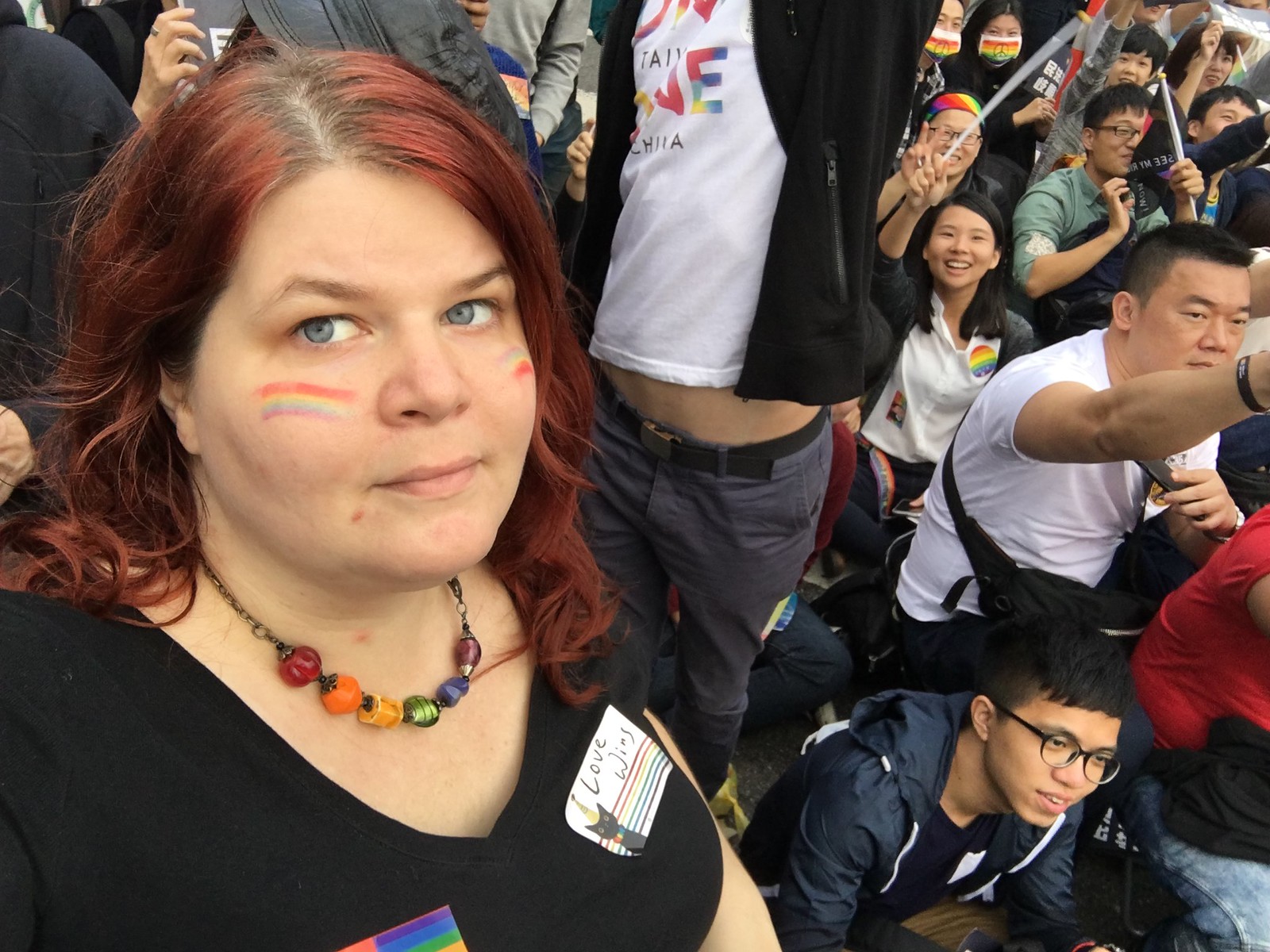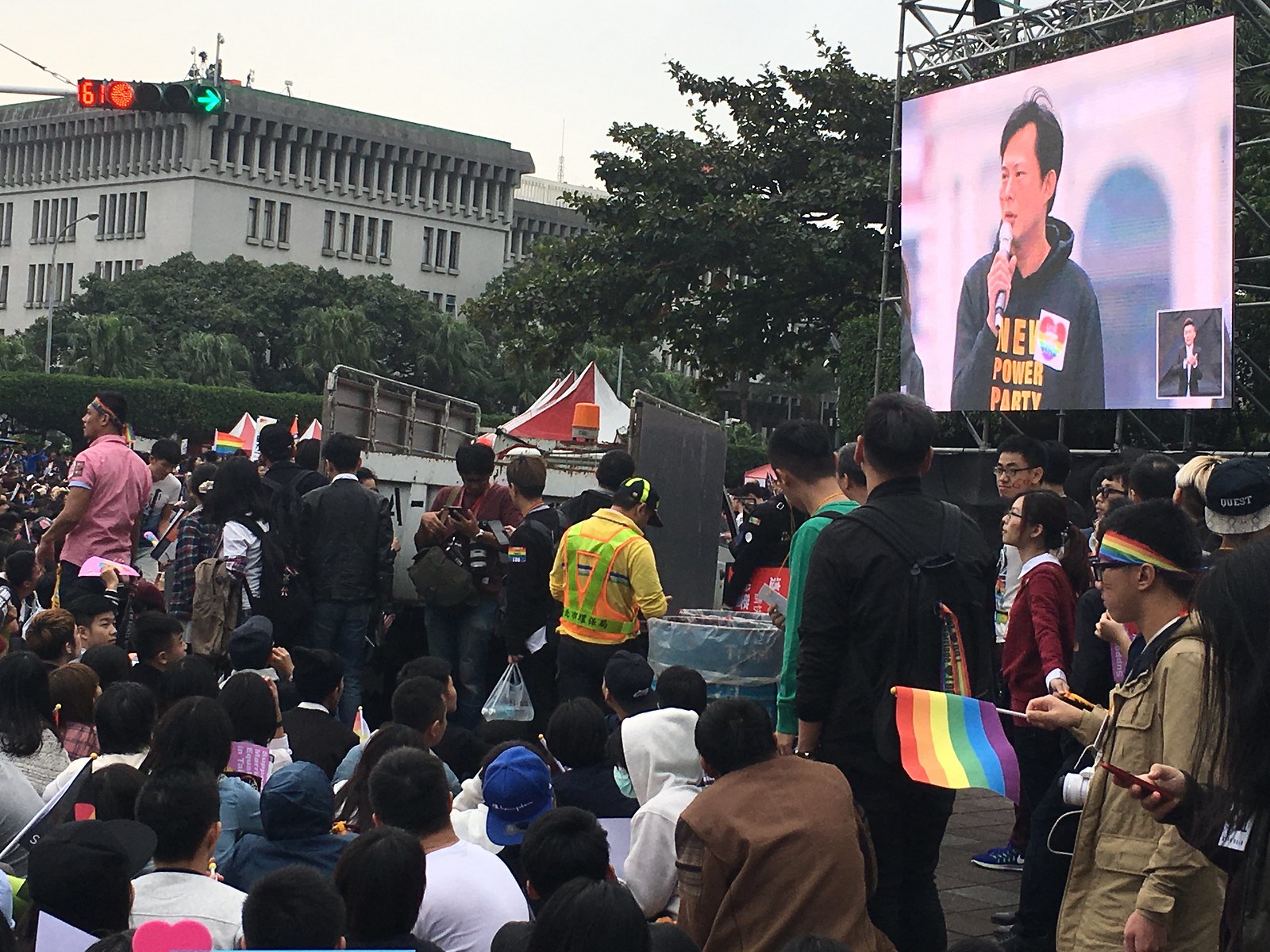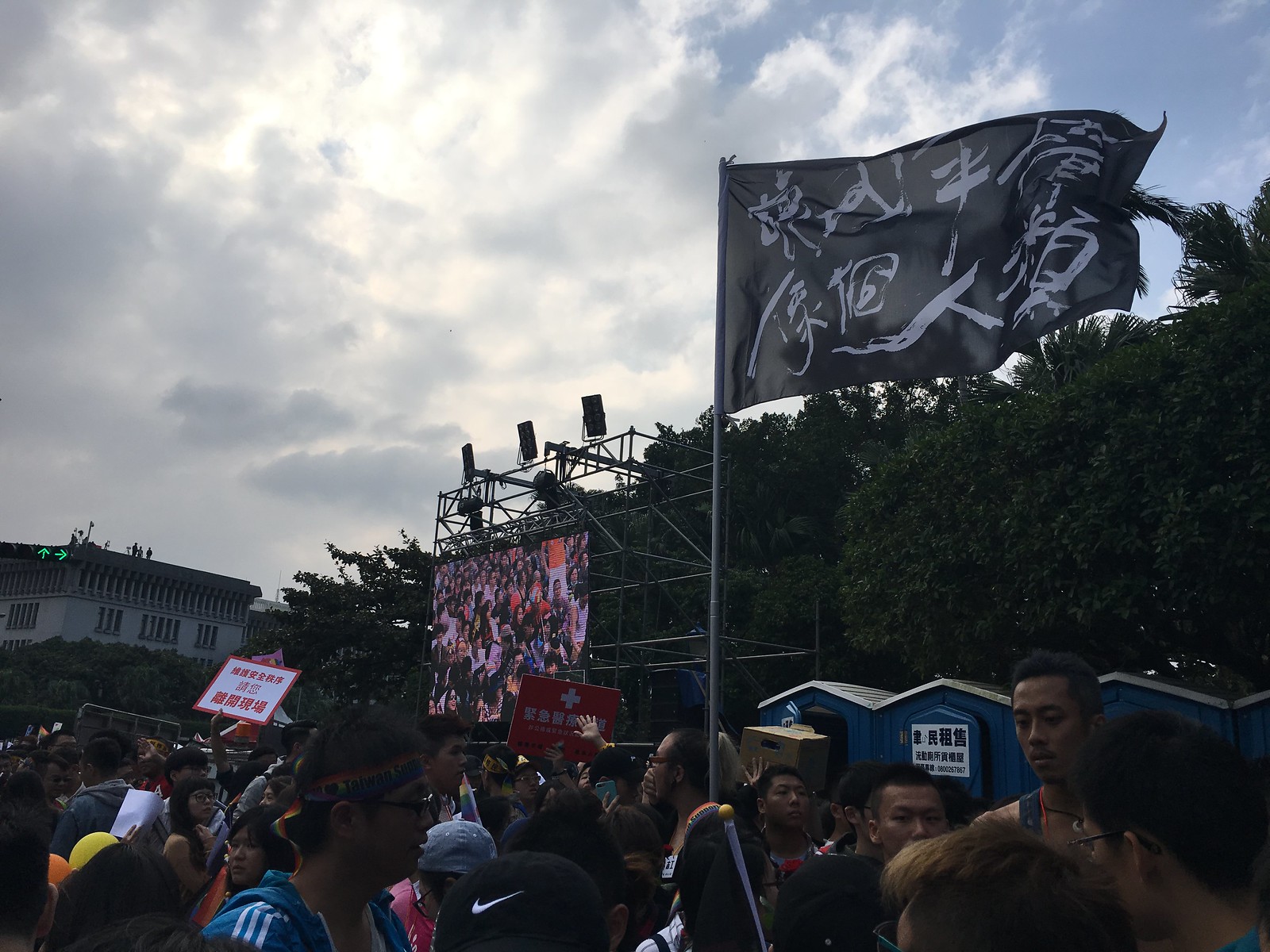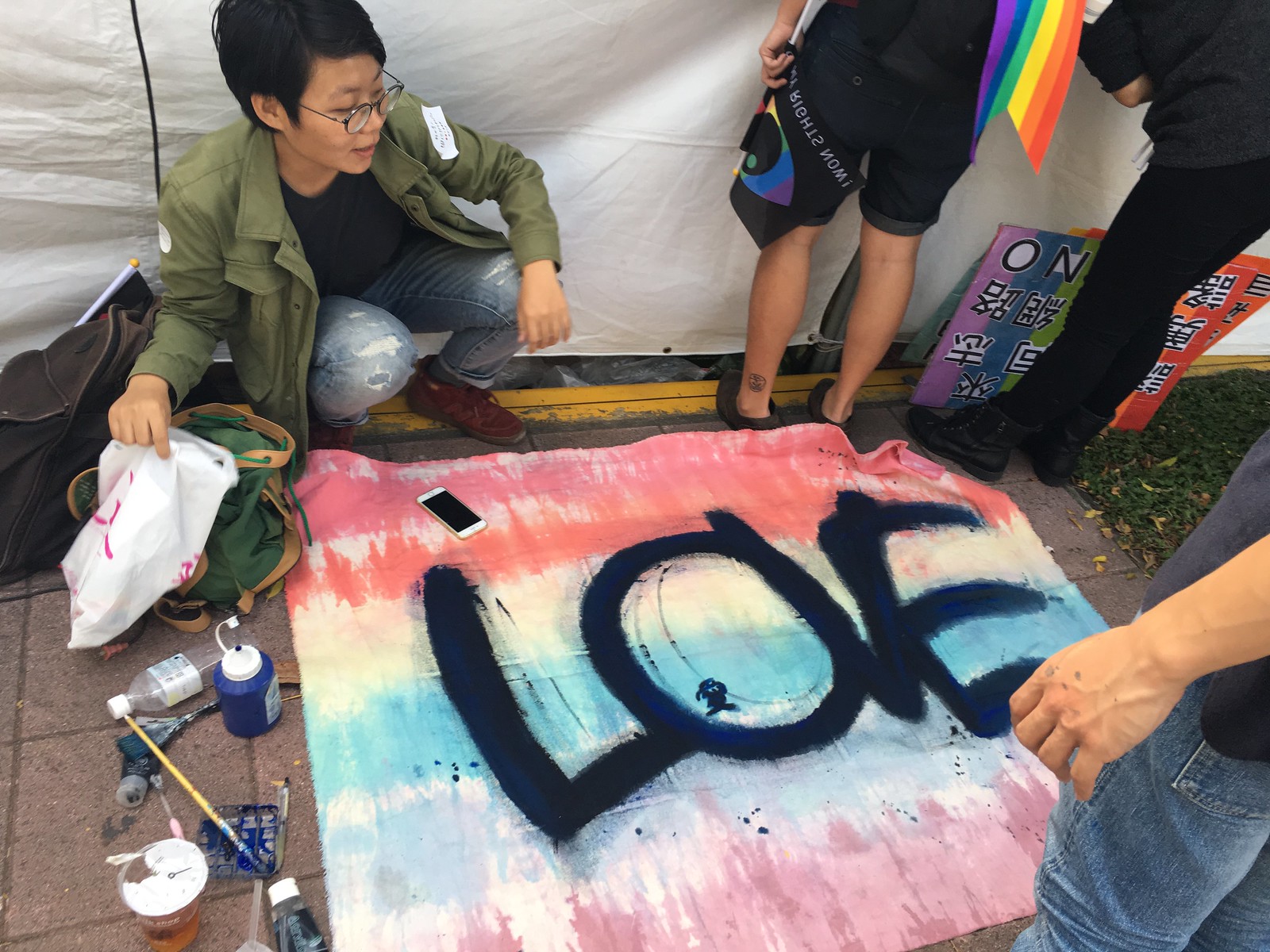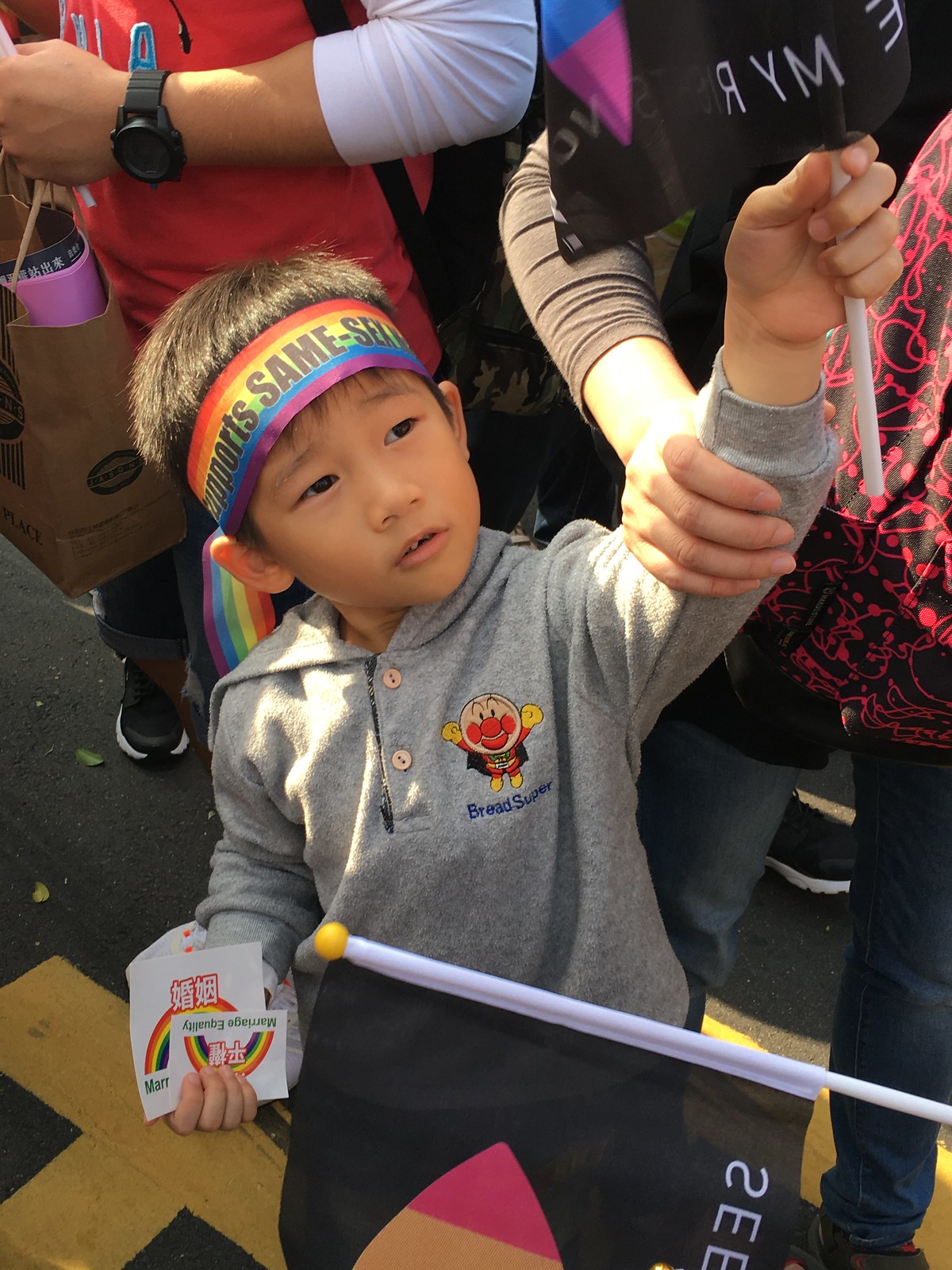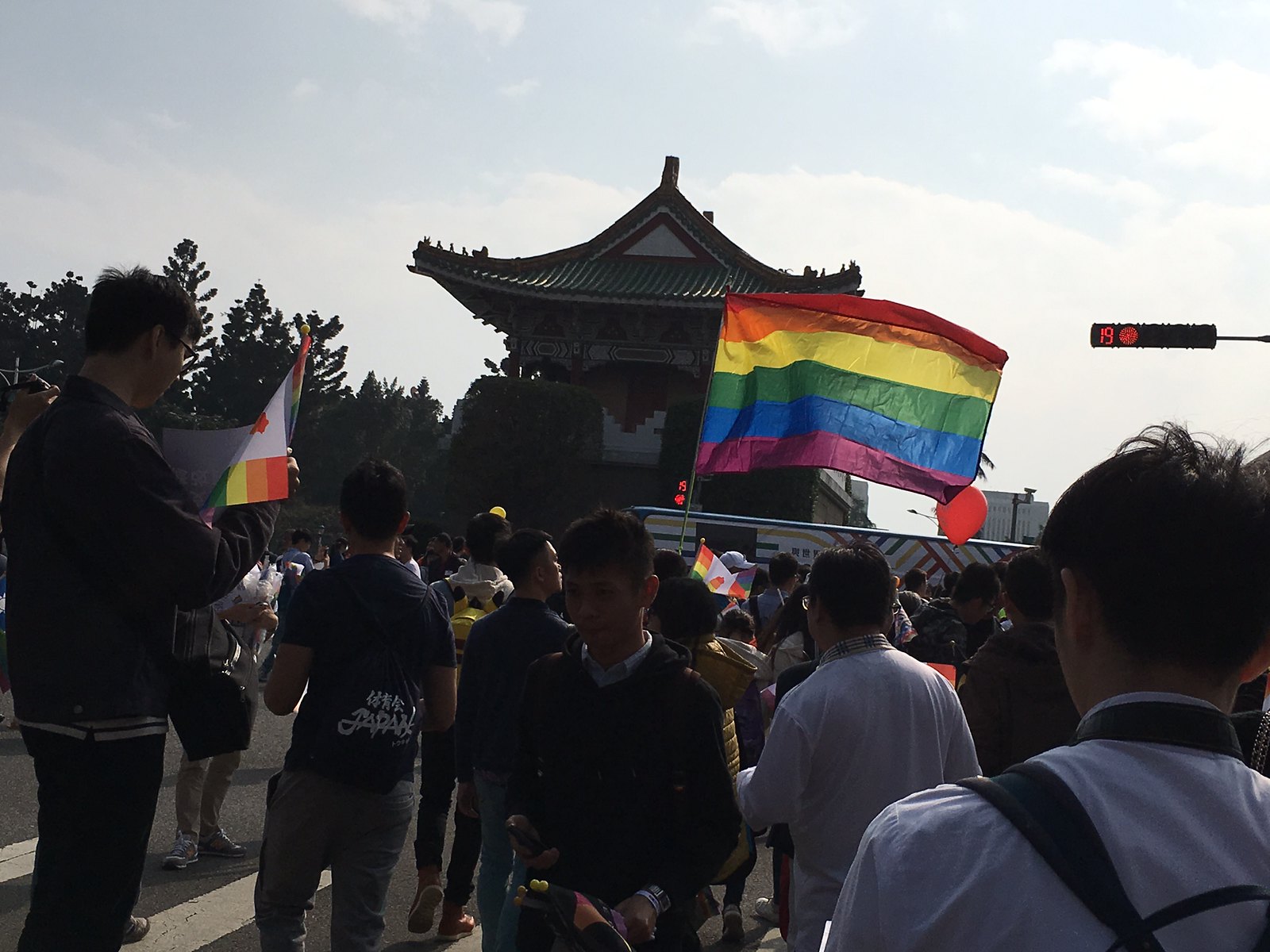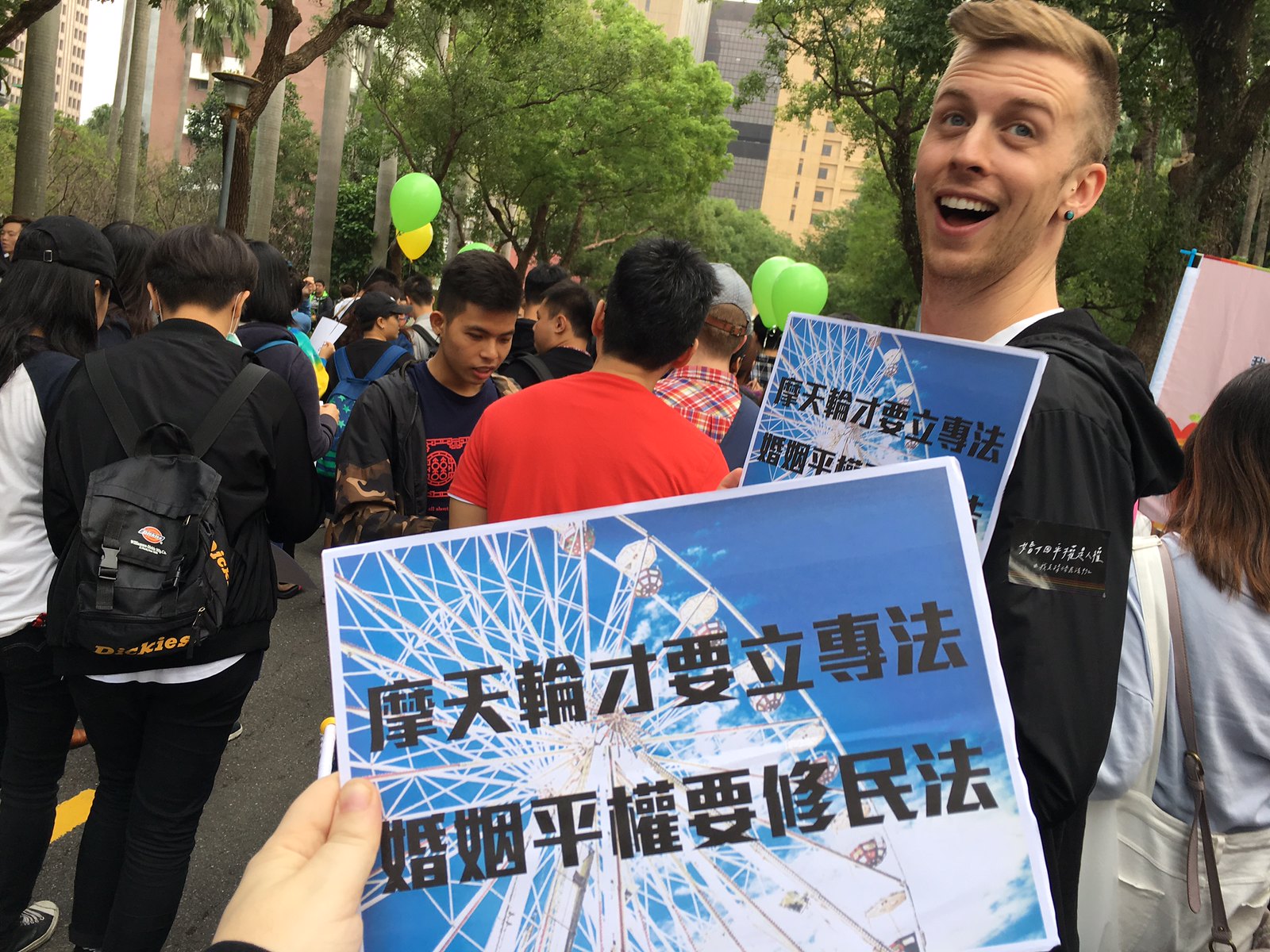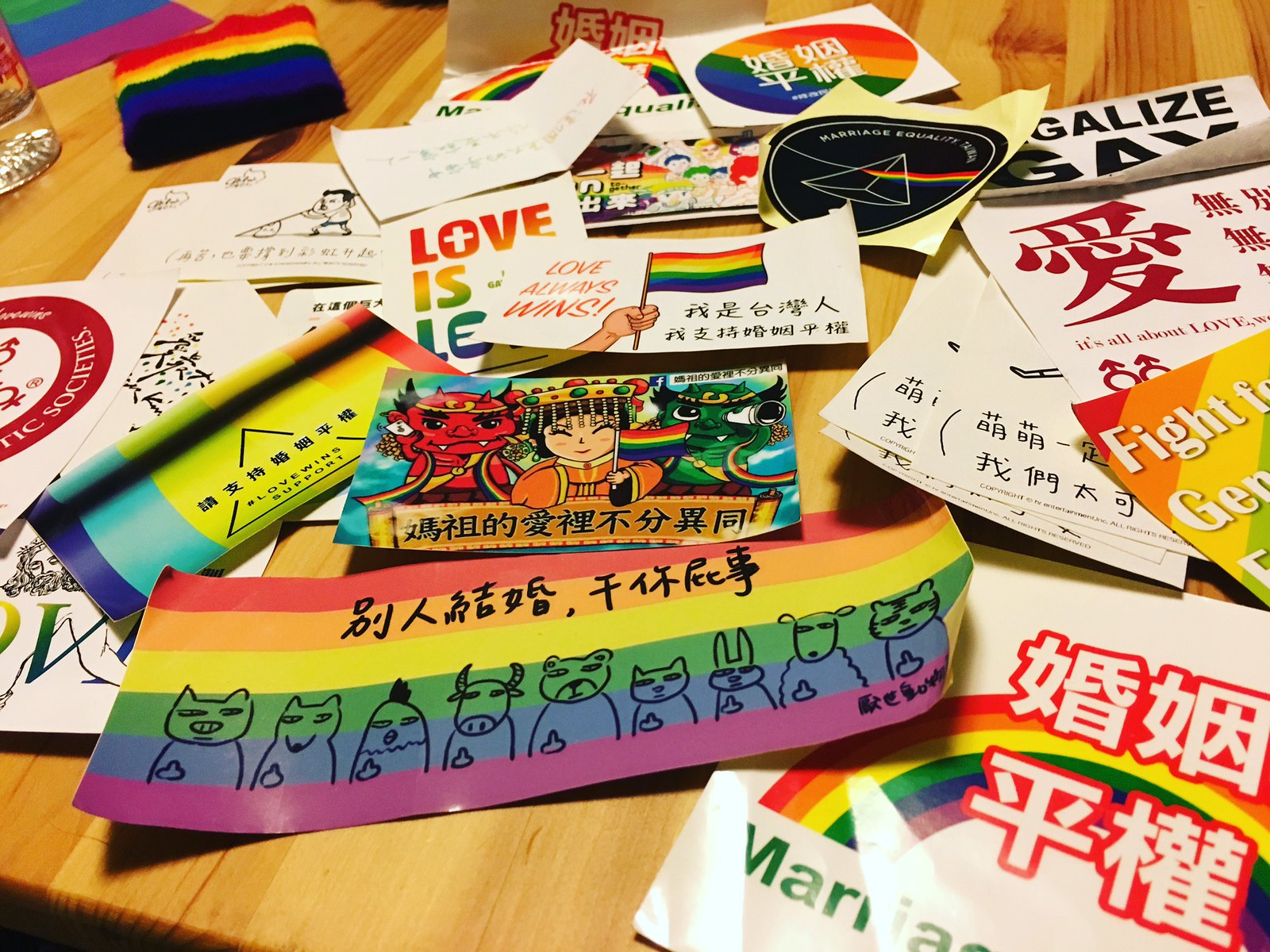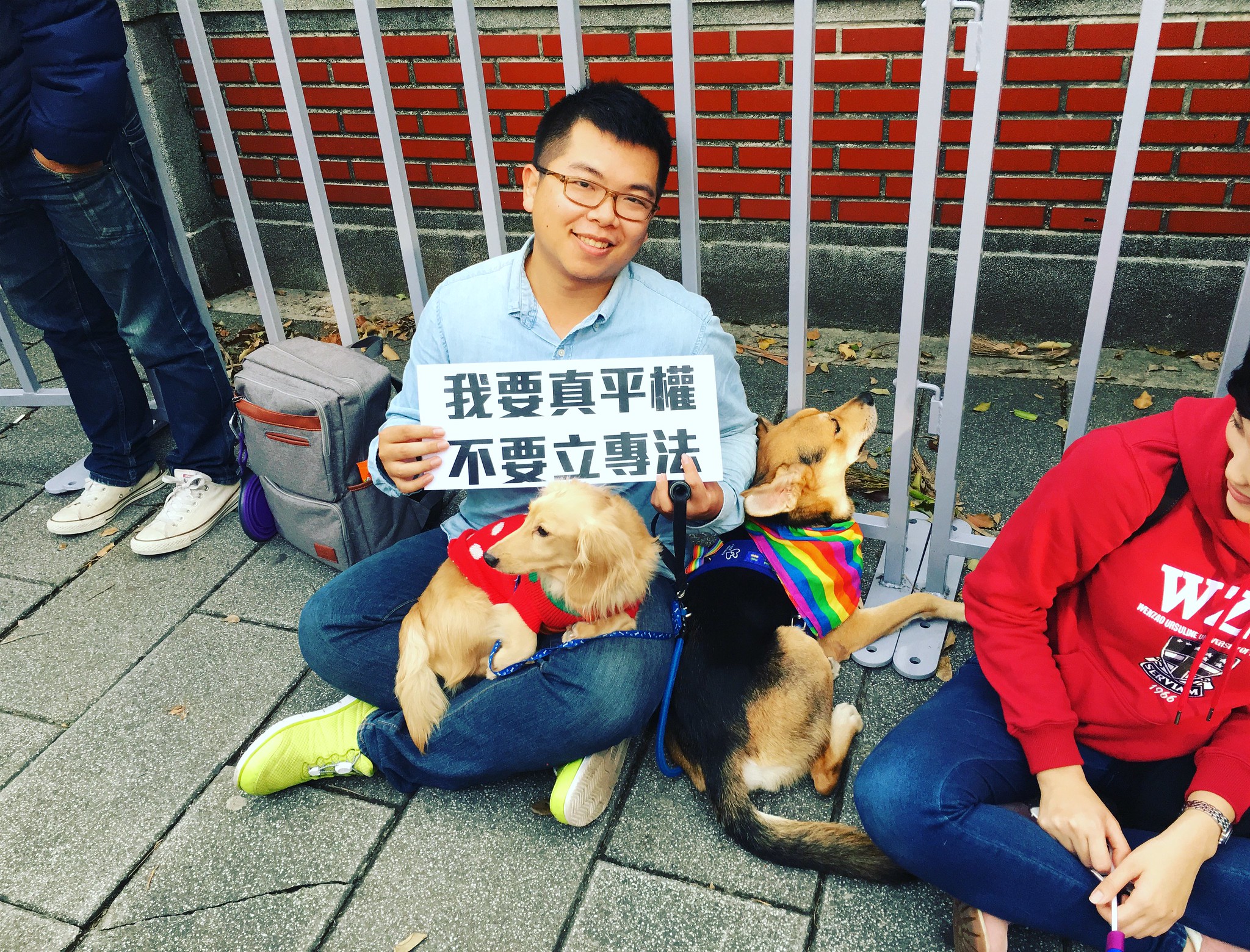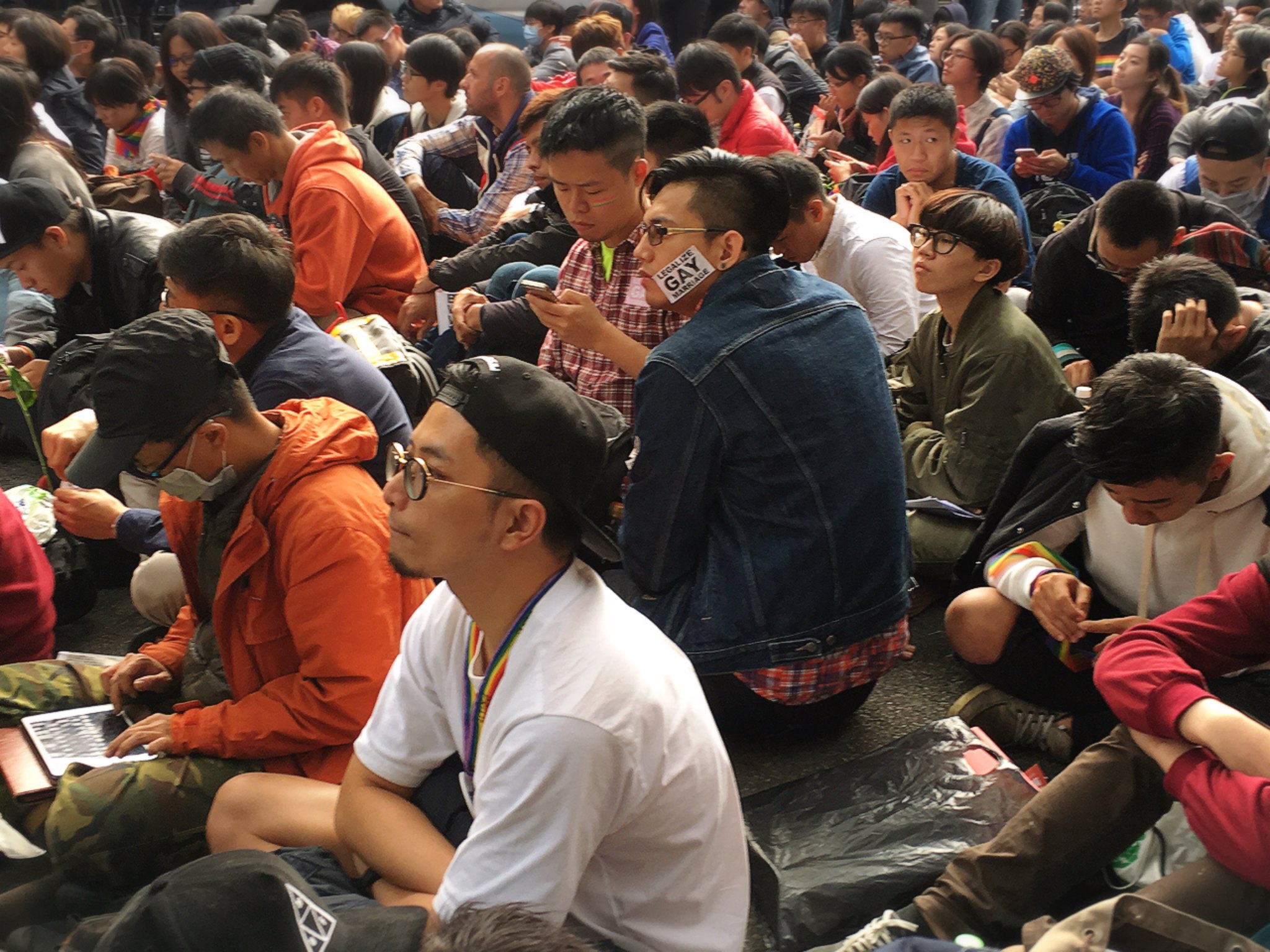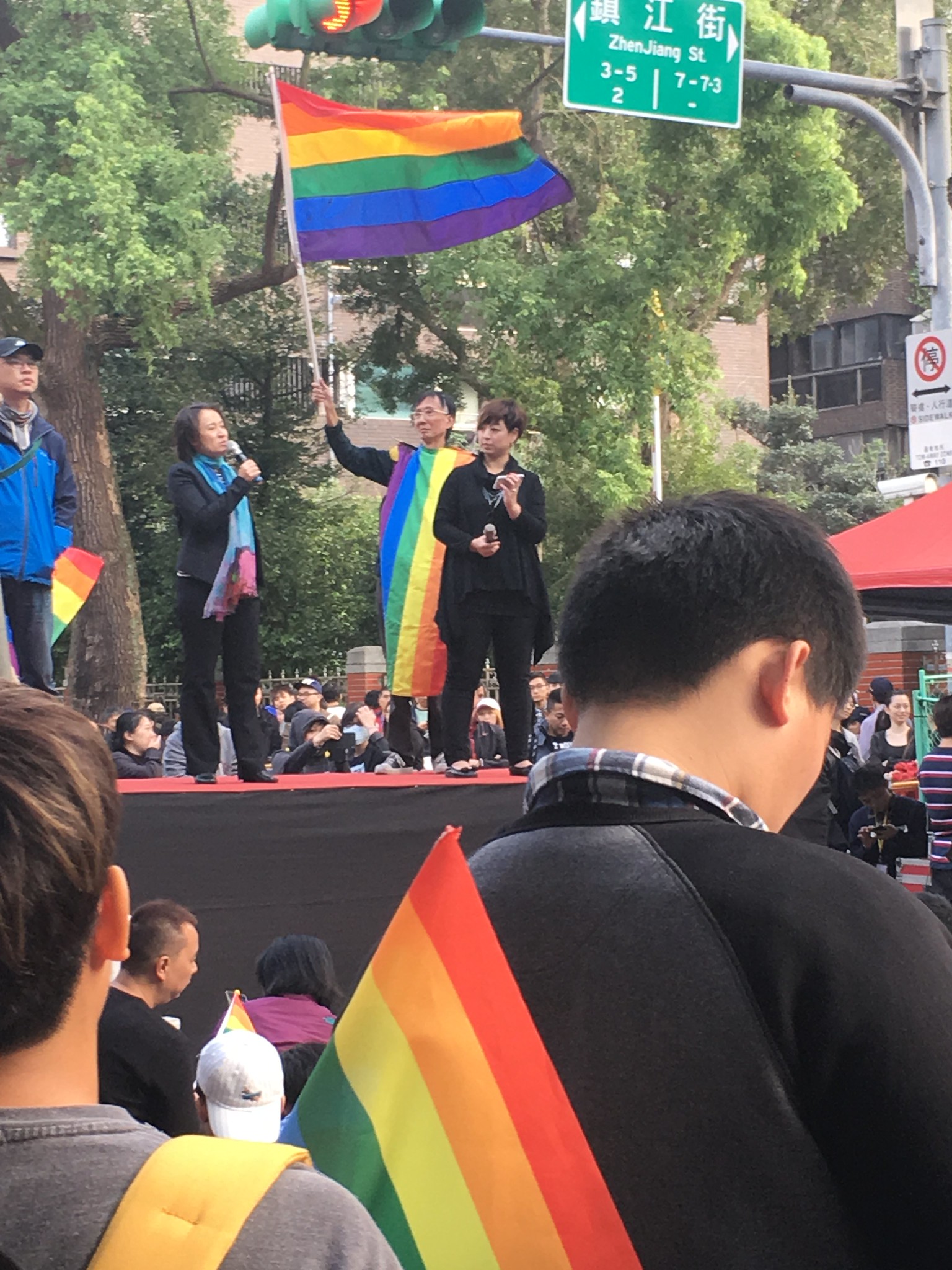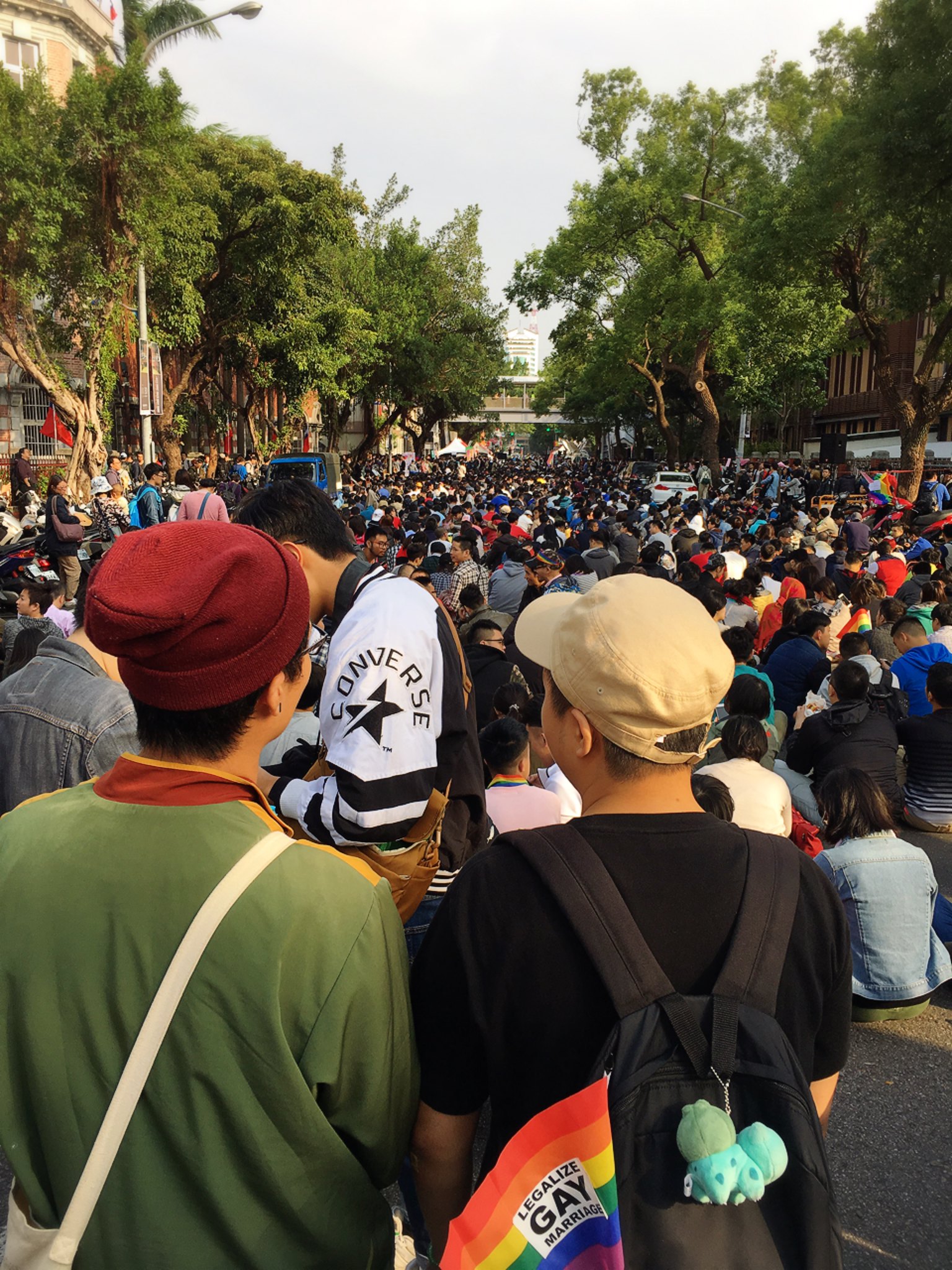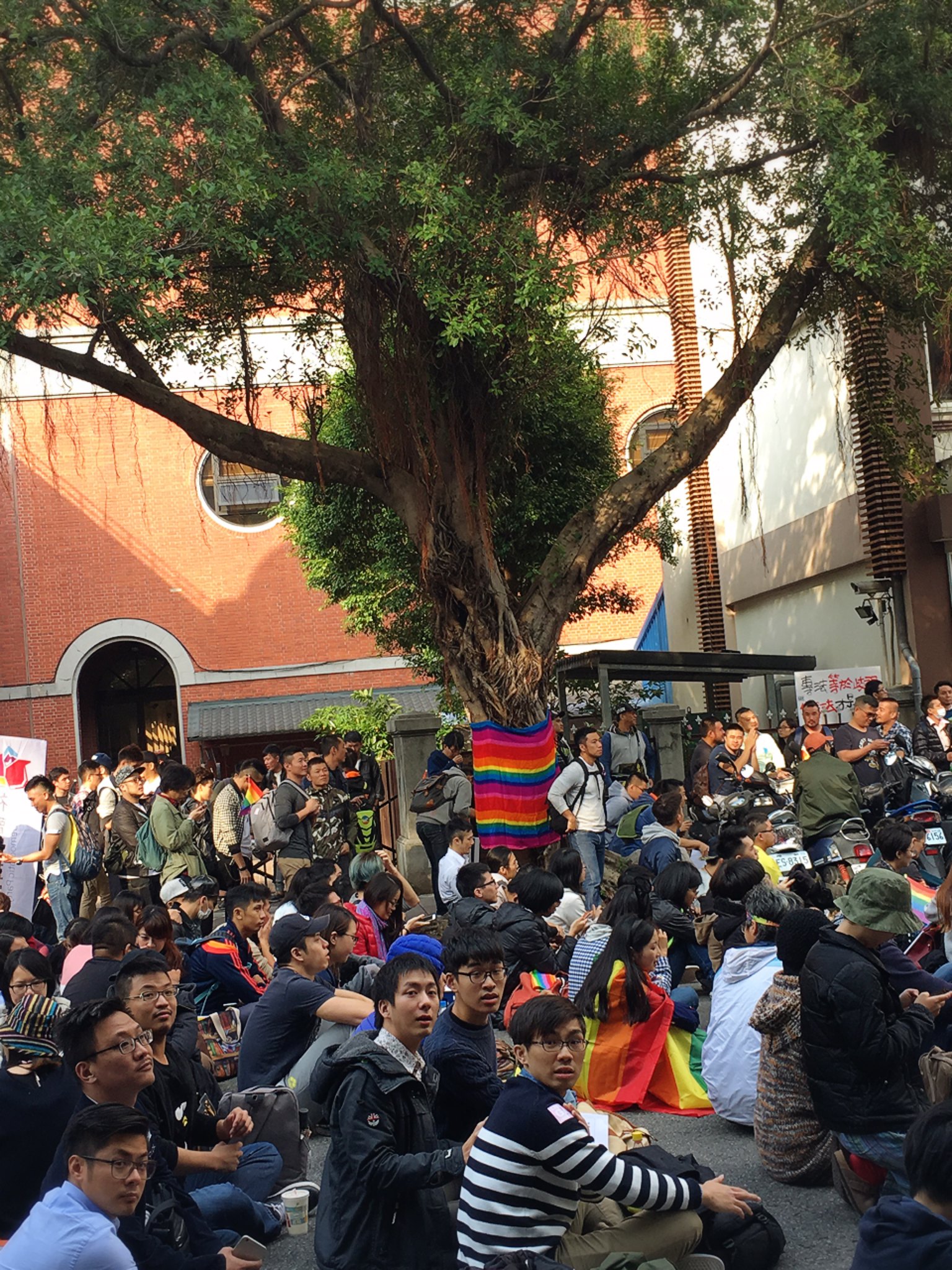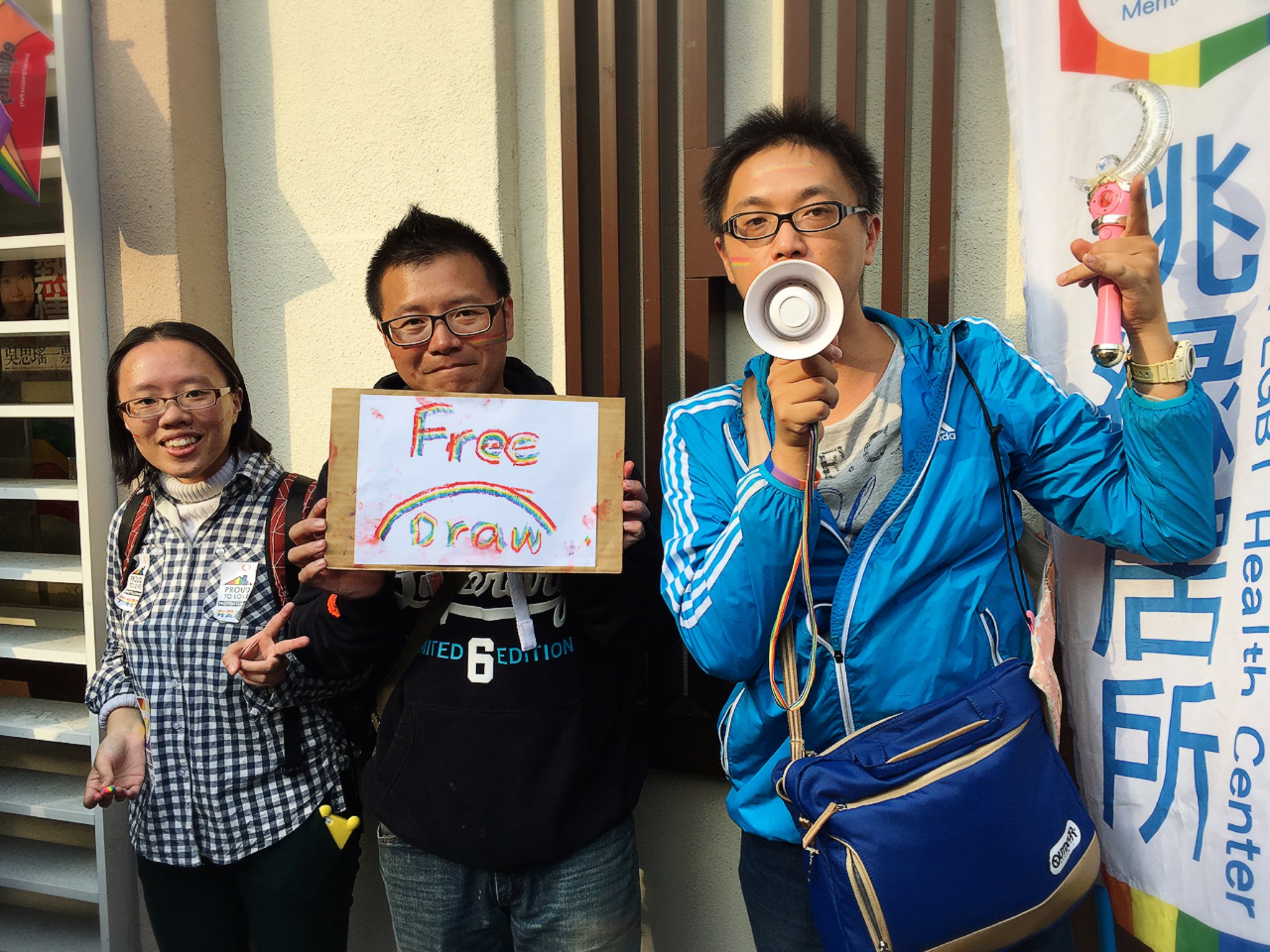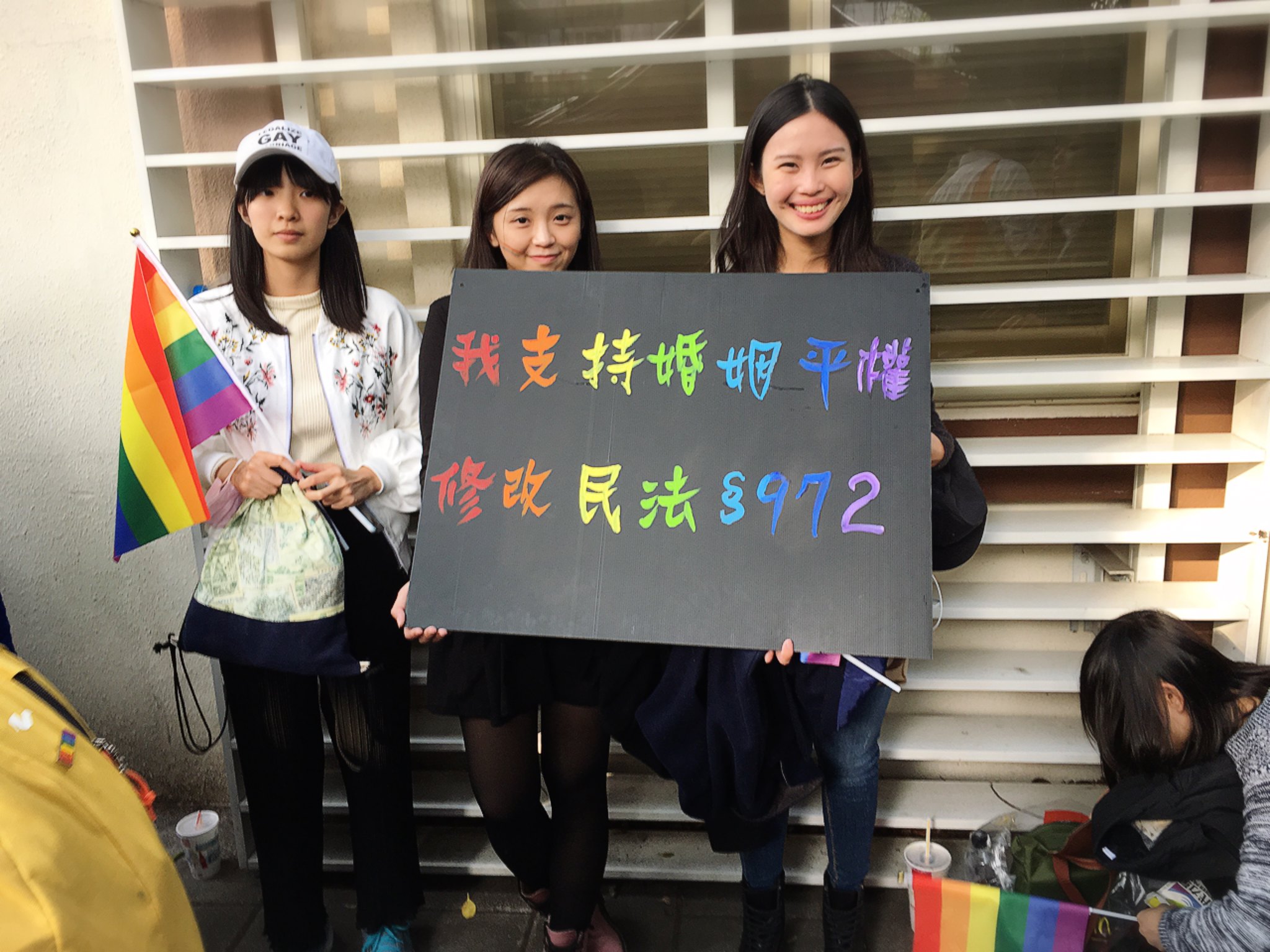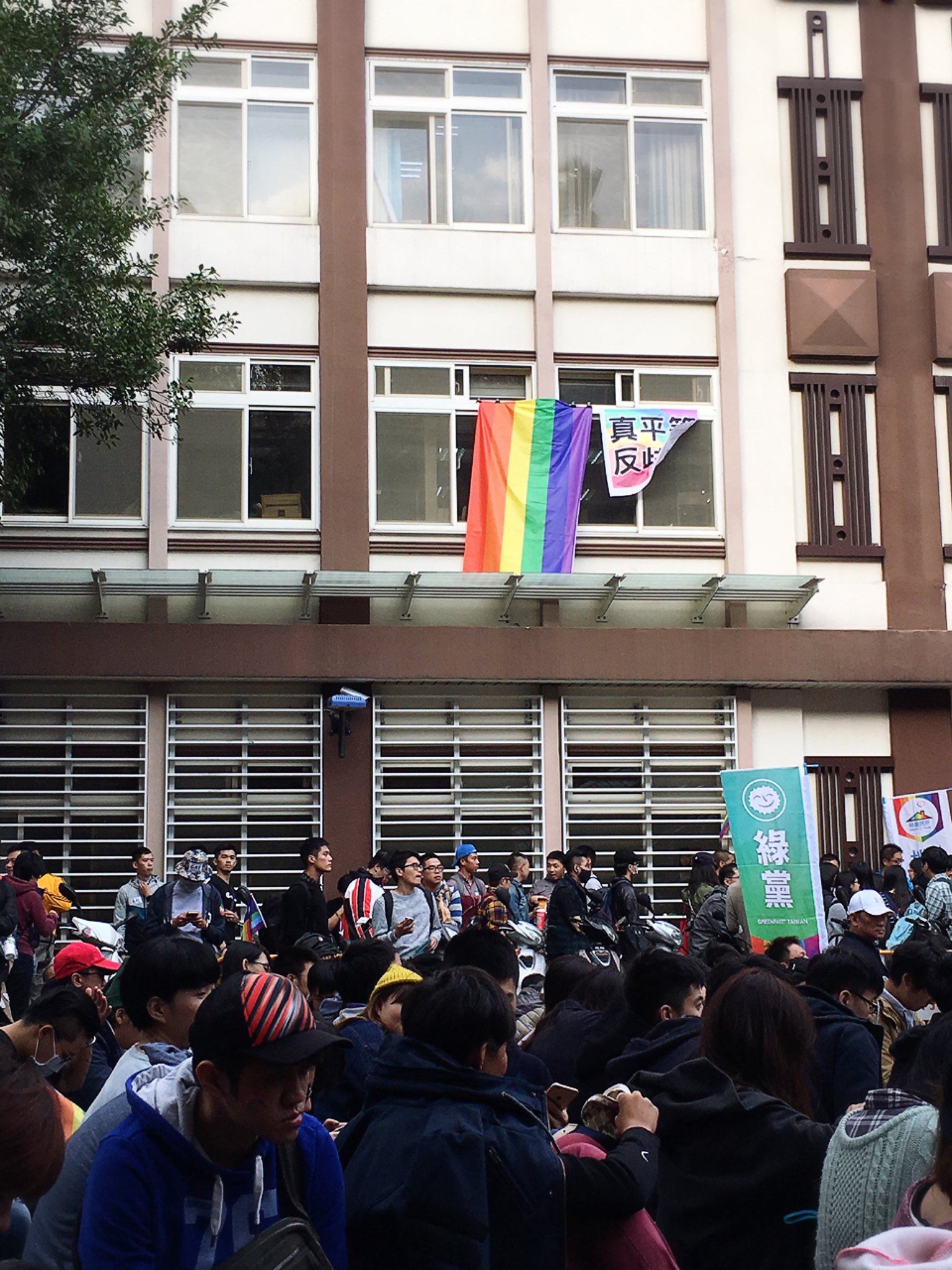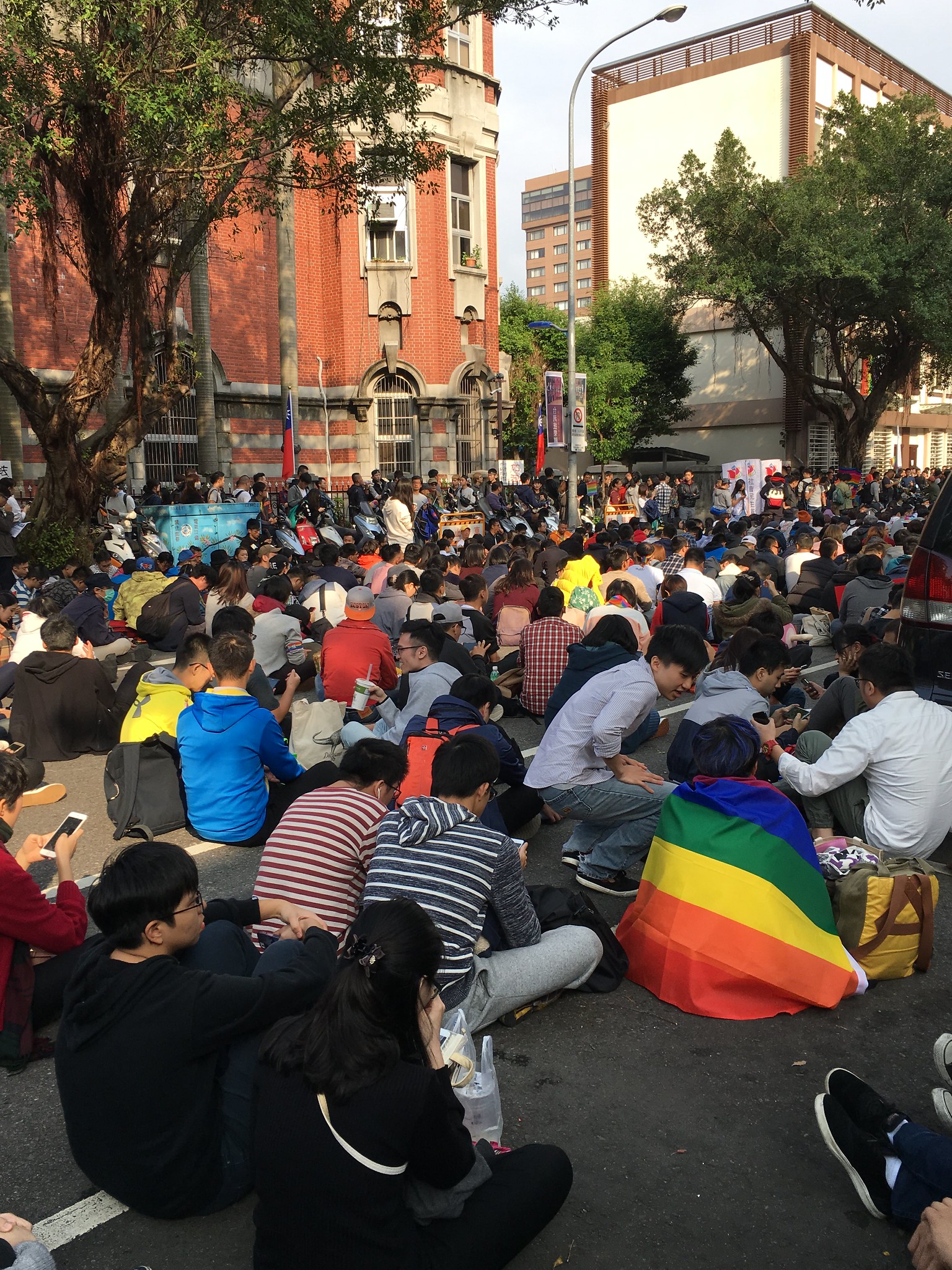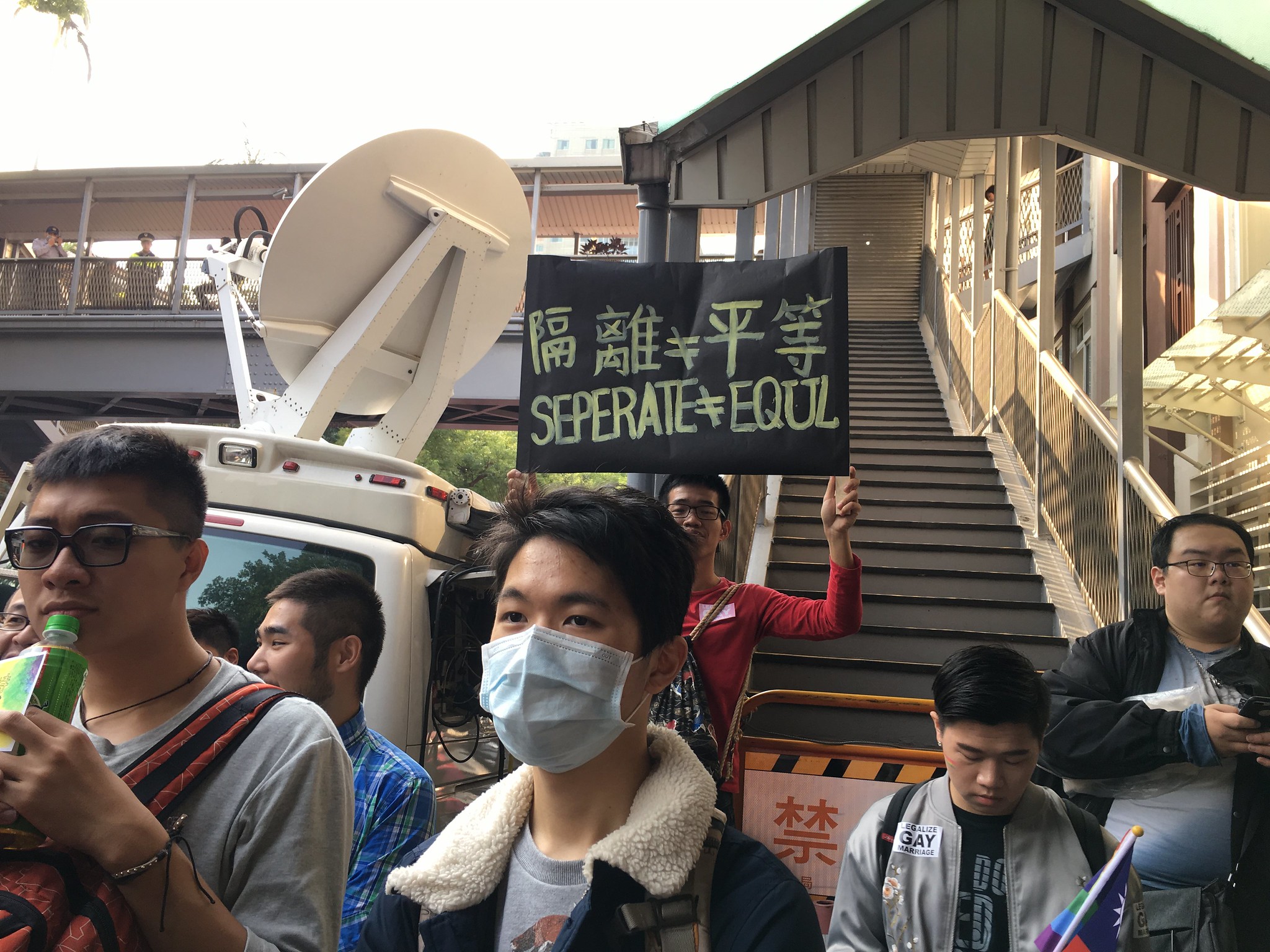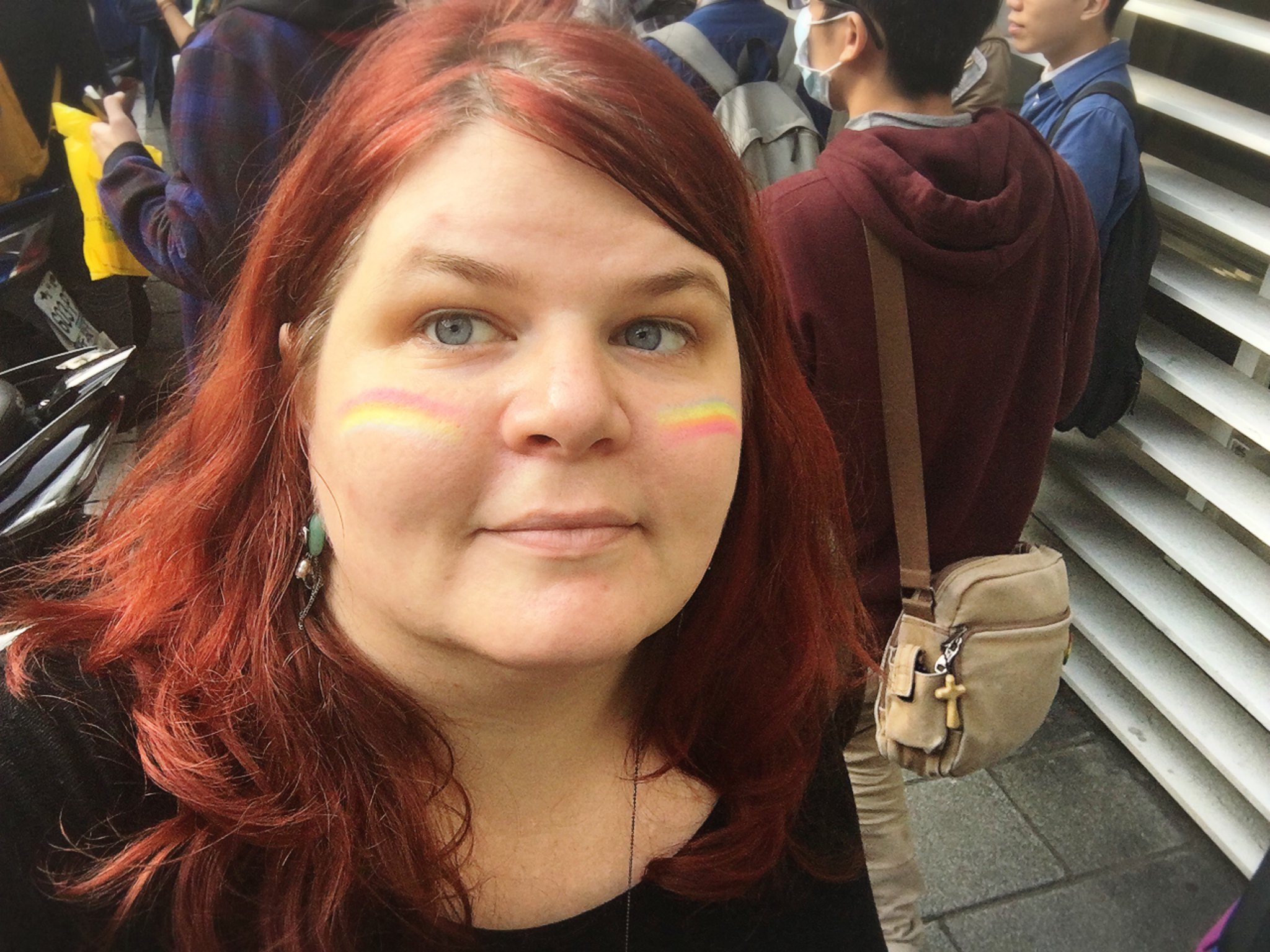Earlier this week, I was discussing marriage equality with a pro-equality student (I wouldn't have brought it up otherwise), who indicated that "it may be some time, because there are more people against marriage equality now". I asked him why he felt that way as, in fact, most polls pretty consistently show a majority of Taiwanese are in favor of it. He said that he'd seen the two rallies on December 26th on the news and the anti-equality side seemed a lot bigger.
I told him that most journalists I know believe that not to be the case - police estimates have the pro-equality rally at 5,000 and the anti- at 4,000: better, more accurate estimates have the pros at 30,000 and the antis at between 10,000 and 20,000. He knew nothing of the less civil, more hot-headed actions of the anti-equality crowd, and had been led to think that maybe the pro-equality side was pushing too hard (in fact, that side was widely reported to have been civil, welcoming, friendly, well-behaved and safe).
It felt not only like the news was trying to gin up disagreement where there is little, or make the two sides seem more equal in number than they are or have more similar levels of support than they do, but to actively make it seem as though Taiwanese are, by and large, opposed to marriage equality when this is simply not the case. The disagreement is not nearly on the level of a 'culture war', and society is not nearly as 'divided' as reports suggest (though it is true that support is not universal).
I have tried to find examples of what my student spoke of, but was unable to - and I personally do not own a television. I was unable to find relevant clips online, but I do believe my student: why would he lie about his impressions?
It echoes an online conversation I was briefly involved in, but left, that included two expats who insisted that marriage equality was being "forced" on Taiwan by "the West" when we shouldn't do that because they "have a different culture and values" (sure, but if they did in that way, then there wouldn't be support for marriage equality). One admonished us pro-equality supporters not to "push something on the Taiwanese that they don't want" (again, because I can't say it enough times, marriage equality has majority public support).
That's not all, of course. Don't even start me on this bullshit. They actively twist the truth to make it sound as though the people swiftly condemned marriage equality: nothing could be further from the truth. The pro-equality rallies, despite not having well-organized church networks behind them, consistently draw larger crowds. This is straight-up American-style 'fake news' (not a fan of the term but I'll stick with it for now) coming to Taiwan on the backs of bigots.
Another report I've heard of from a few sources is that rumors are being spread that the proposed changes to the civil code would also make sexual intercourse between an adult and a minor (so, basically statutory rape) legal. This is a straight-up lie - the proposed changes would do no such thing - but it is beginning to gain traction.
There's also this poll, which I have my doubts about. The change is far too quick, and doesn't at all square with the turnout we've seen at pro-equality rallies. The question about "pushing legislation through" (rather than simply supporting marriage equality or not) seems oddly worded, at least in English. The sample size is not great, but acceptable, however, I am not sure at all that they adequately got a sample of a variety of ages over 20 if they used land lines: do younger people even know what land lines are? They are almost certainly guaranteed a skewed sample of older folks who are more likely to waver, or not support, equality. The younger people they claimed to have included wouldn't have a land line phone to be reached on! (I don't know much more about this poll - here's a link in Chinese to the guy whose foundation ran it. I don't know who he is, and I have never heard of this particular organization. Have fun.)
Of course, I shouldn't be surprised. Being generally anti-journalist - because accurate reporting on their beliefs and methods would make them look bad, so they have to spread lies - and knowing quite well that the tide of opinion is not swinging their way and likely never will again, the easiest recourse is to lie. Not only that, but to distort, appeal to emotion over logic, insist on respect and an equal platform for unequally-sourced and evidenced views, to insist on respect and ears lent to their religious ranting, to try to equate intolerance of their bigotry with their intolerance of basic equal human rights. In a word, to troll (because I do think purposely making the pro-equality side angry is a part of this). When your views are not supported by logic, evidence, scientific findings or rational debate, but you have decided you must believe them, you basically have to become an ignorant comment thread come to life. Your only choice is to spread 'fake news' through outright lies or carefully-edited media, and appeal to a post-truth world.
In short, it's easy to make it seem as though your side has the most support, when you decline to mention that the other side has almost twice as much: that's what both that MassResistance steaming turd of an article and the video linked above are doing.
Don't believe them. Be smarter than that.
What bothers me is how little I can do about it. I can write about it here, but it would take a level of language ability I don't have to write something in Chinese, and I would gather most Taiwanese not only don't read Lao Ren Cha (hahaha) but don't often read English-language media in general. Even if I did pursue this in Chinese, would the people who need to read it do so? Most likely not. Would it be an effective counter to the barrage of 'fake news' coming from the bigots? Again, most likely not.
It's already had an effect - people are starting to say "well it looks like society really is divided" (it's not, not really), and the government is giving the anti-equality crowd a bigger platform, and more political influence, than they deserve. Remember, the anti-equality fight is mostly led by Christians and Christians make up less than 5% of the Taiwanese population, although they wield considerable influence in both major parties (and the influential ones tend to be wealthy).
I do feel like action needs to be taken, but I'm at a loss as to how.
Another worrying point? Amid all of this post-truth nonsense carried out by people with troubling agendas, right now in Taiwan we're witnessing a generally popular, though with predictably faltering approval ratings, generally 'progressive' DPP administration falter a bit as it tries to wield power, coming across alternately as weak and indecisive or frosty and technocratic. They're grasping for the center and finding it's not holding very well (though that's my own personal impression). Although the liberal/conservative divide, such as it exists at all in a context easily understood in Western terms (which is to say, not really), is not along party lines in Taiwan, certainl elements of the DPP come across as overly conservative, causing more progressive elements to consider dropping support or to drop it altogether in favor of one of the many parties to the left of the DPP, such as the NPP (or any of the others). I've already heard cries of "if the DPP doesn't pass marriage equality, I'm not voting for Tsai in 4 years!" which, to my Bernie Babe ears is alternately appealing and worrying.
On the other side we have a party that looks like it's falling apart, with weird infighting, internal decisions on how party voting will be carried out and apologies for whatever-the-hell from Chairwoman Hung Hsiu-chu, people calling for her to step down or whatever and all sorts of things that I barely pay attention to, with a group of ultra-ROC-nationalist pro-China zealots and their deep blue supporters on one hand and a more Taiwanized KMT (which I still hate, by the way, the KMT is gonna KMT no matter what and I'm not interested) on the other, and Jason Hsu in there screaming that they all should be better than they are, or ever will be.
 |
| KMT Chairwoman Hung Hsiu-chu |
At the center of it all we have crazy-ass Hung, and a potential presidential run by Rich Boss Man Terry Gou. OK, sure. Not so appealing, right? They don't look like they're poised for success anytime soon.
But...does that sound familiar to anyone else?
I know it seems unrelated, but in an environment where one party is a bit weak and unable to convey its basic message while the other one is wracked with infighting, and no third parties are strong enough to really shake up the system, where both major parties either are bleeding support (in the case of the KMT) or might well do so if they don't get their progressive act together (that is, the DPP), all I see is well-fertilized ground for all sorts of insidious post-truth rumor-mongering to take hold and propel Taiwan to the same electoral clusterfuck the US just experienced, because nobody knows what to believe anymore, and will simultaneously denounce professional journalism while eating up lies.
Anyone? Y'all have seen this before, right?
Am I the only one who's worried?

